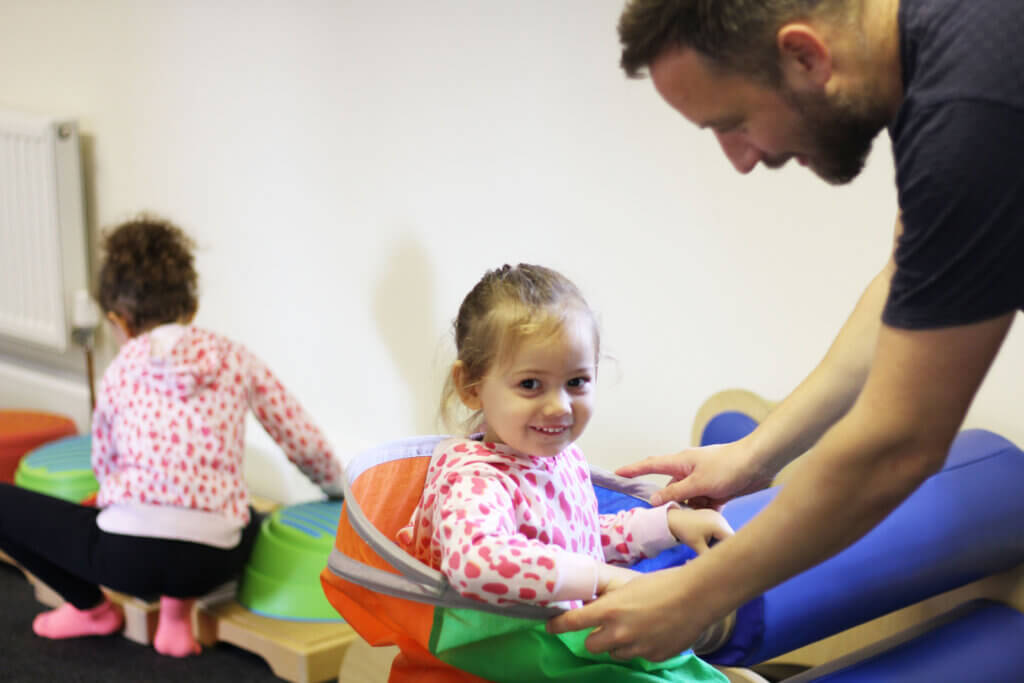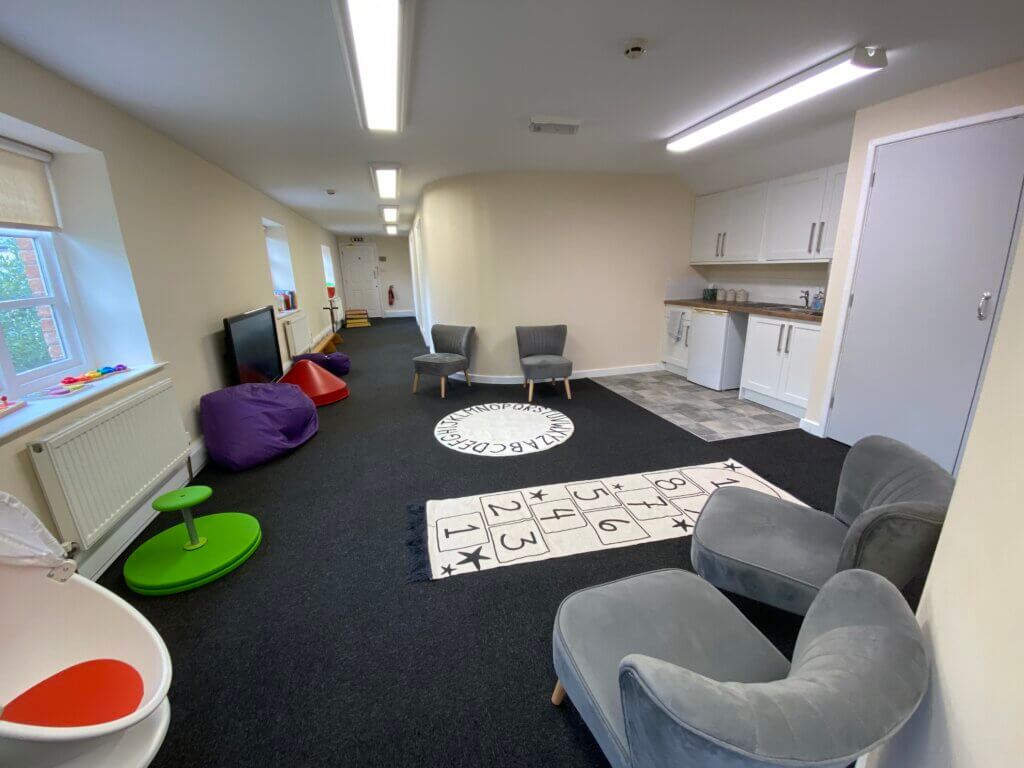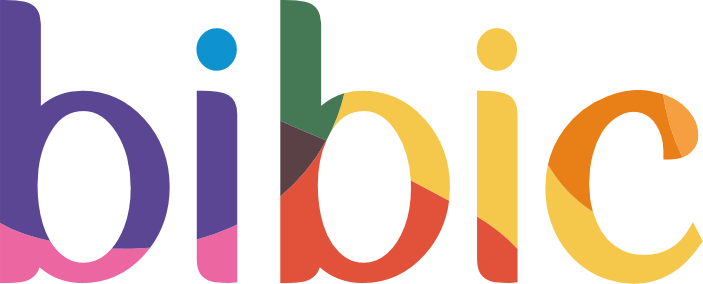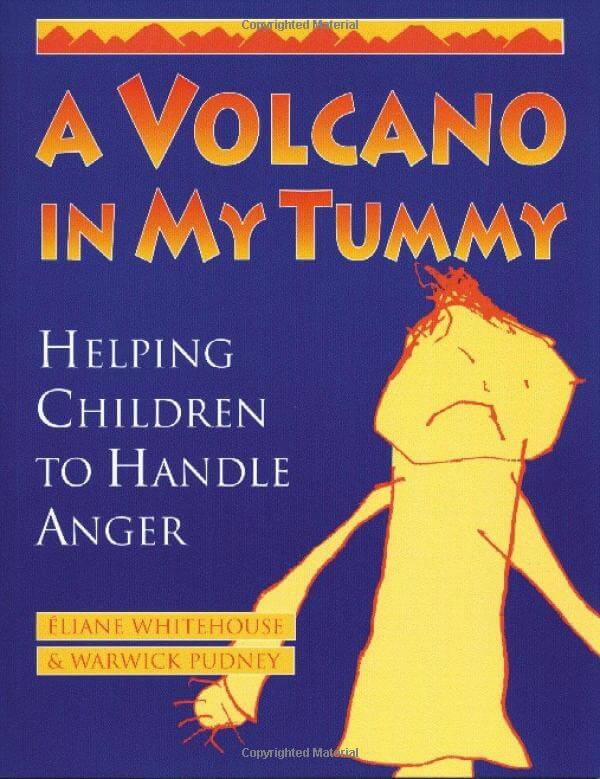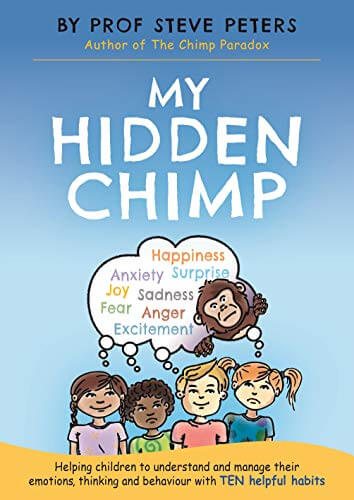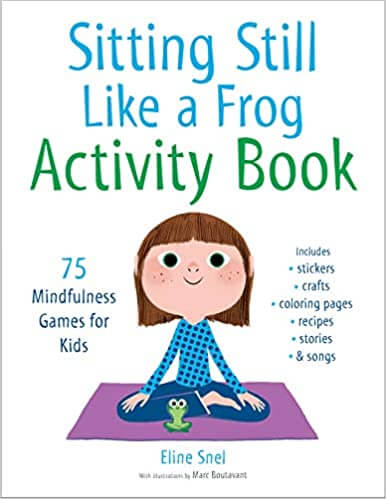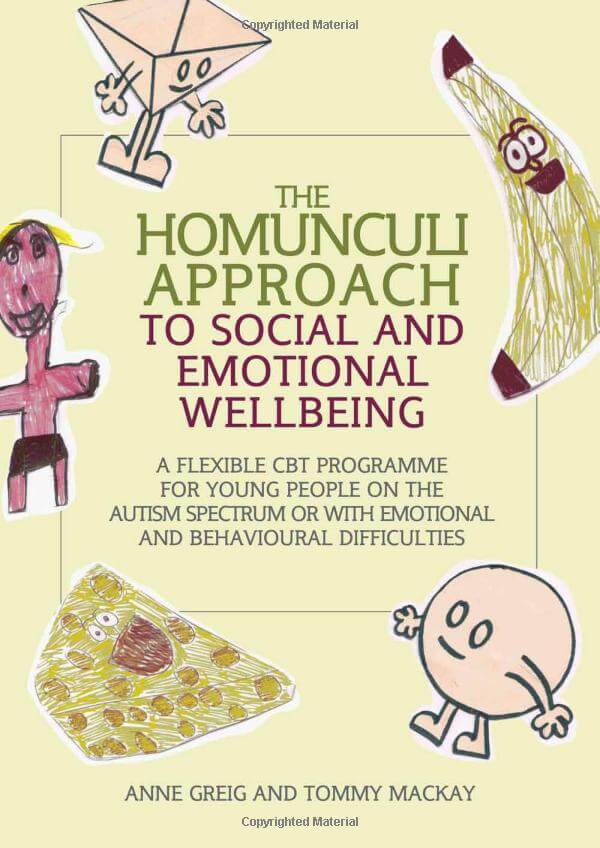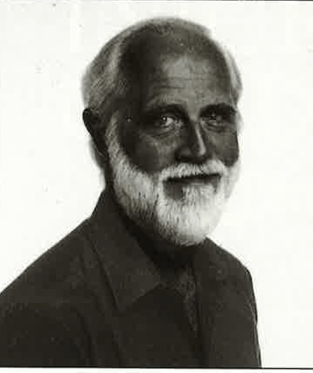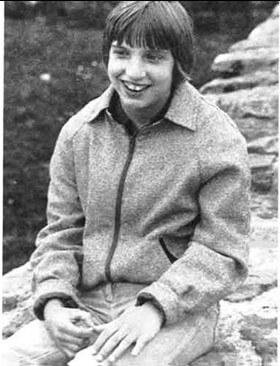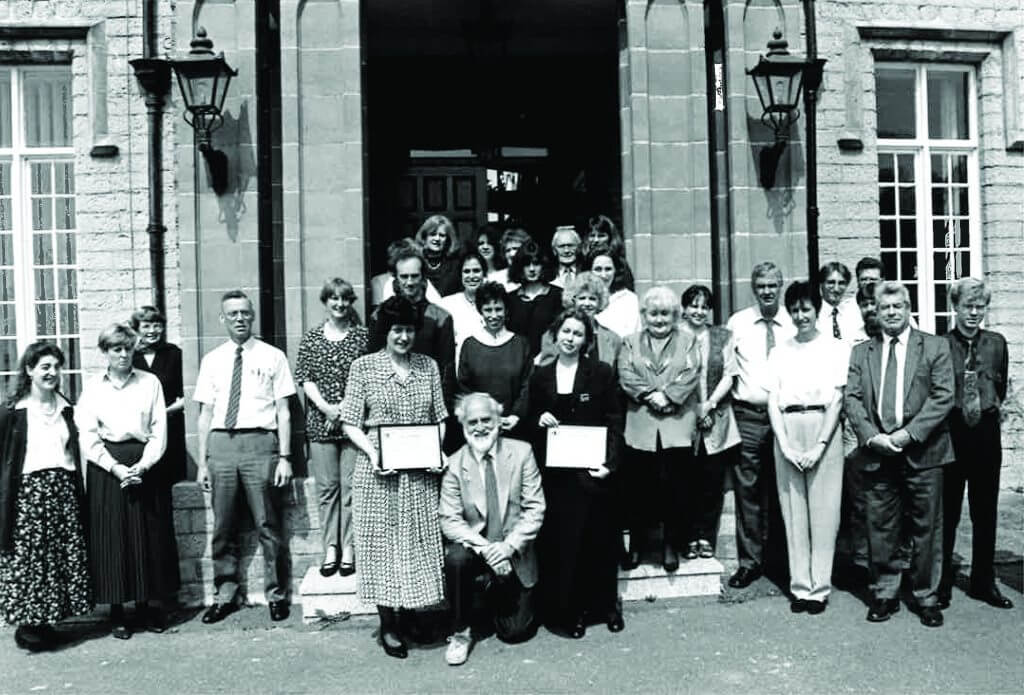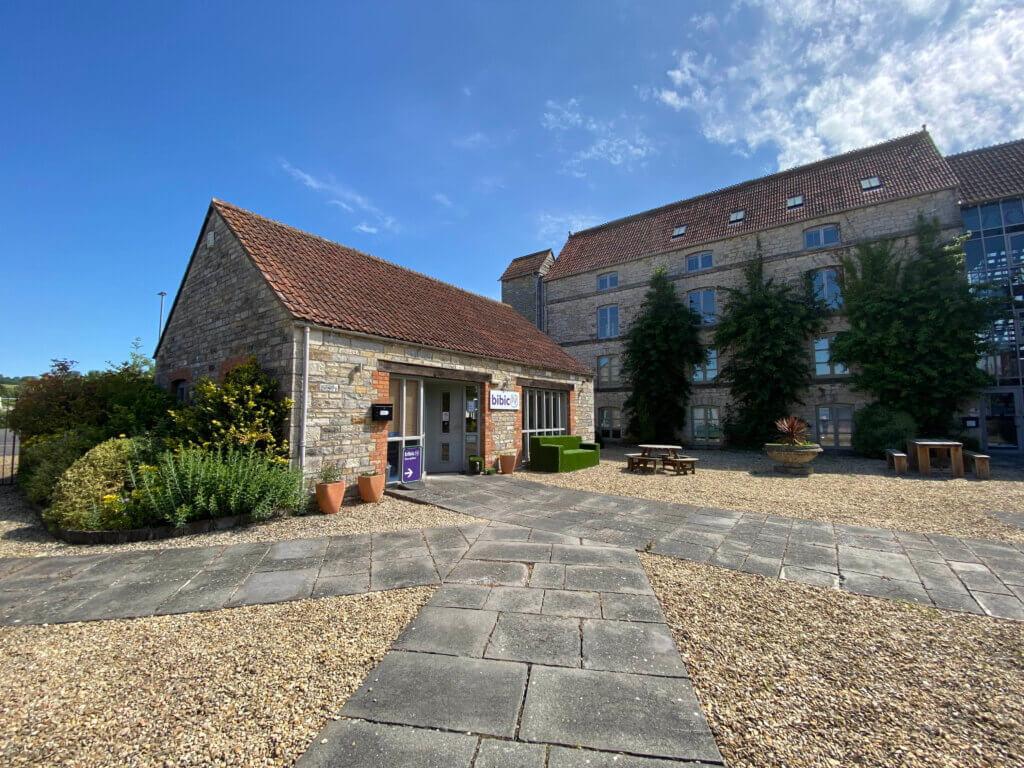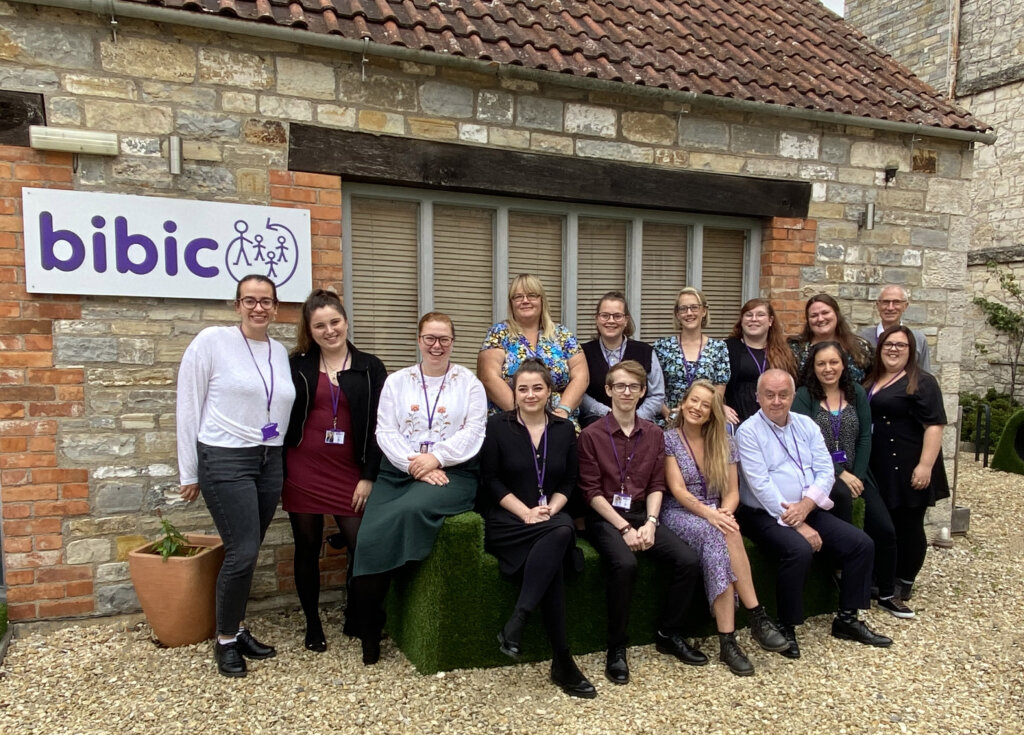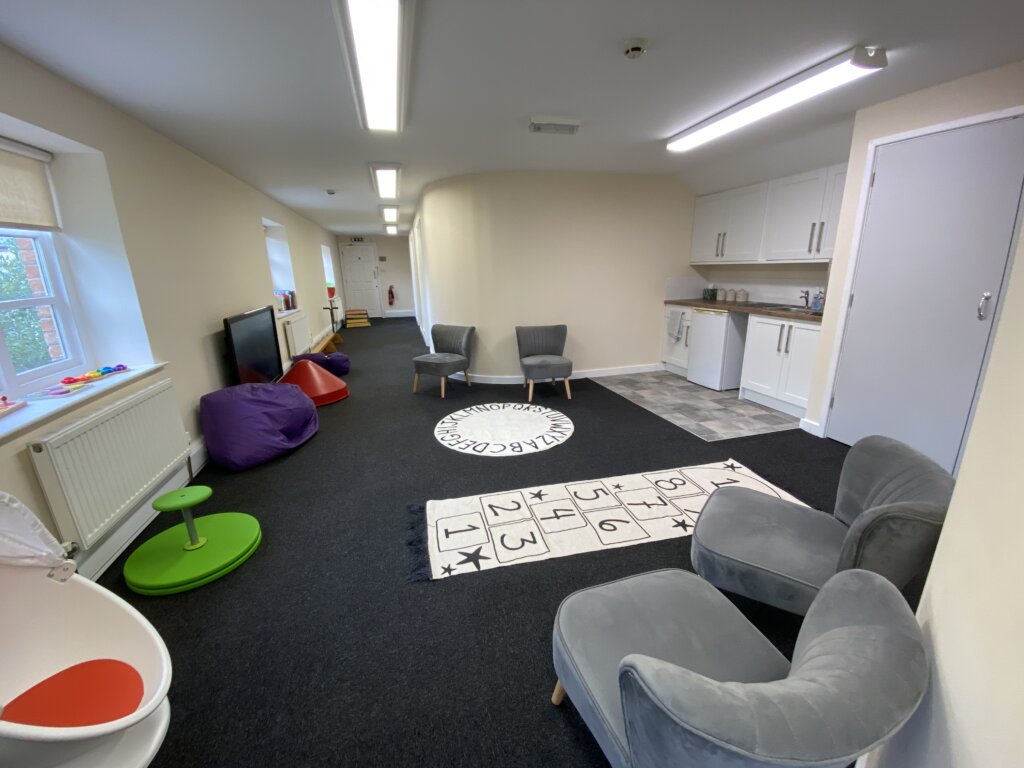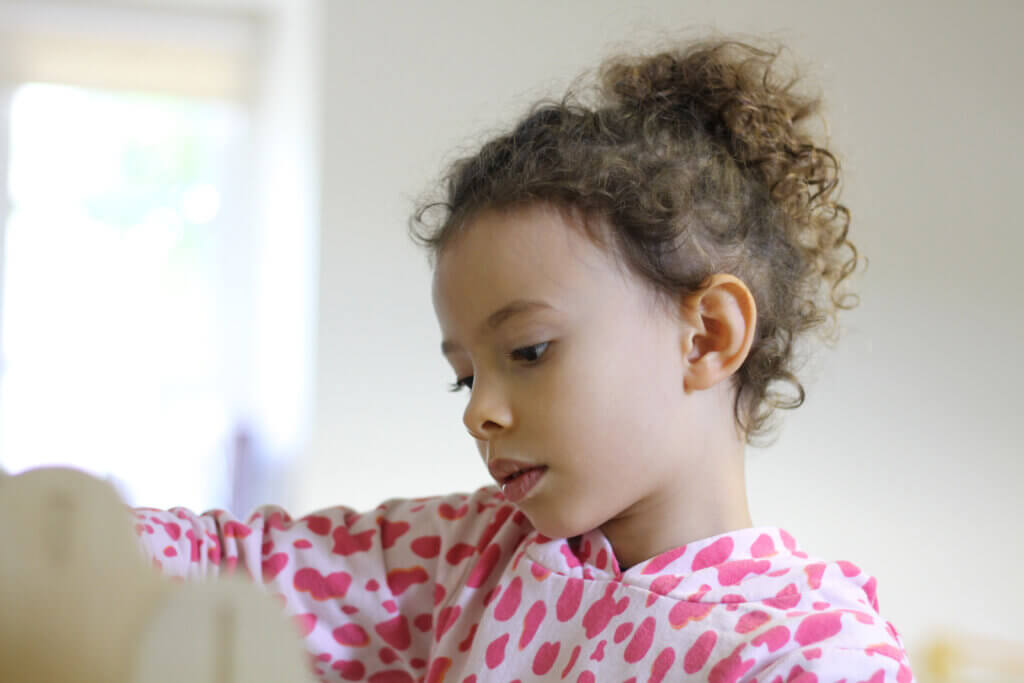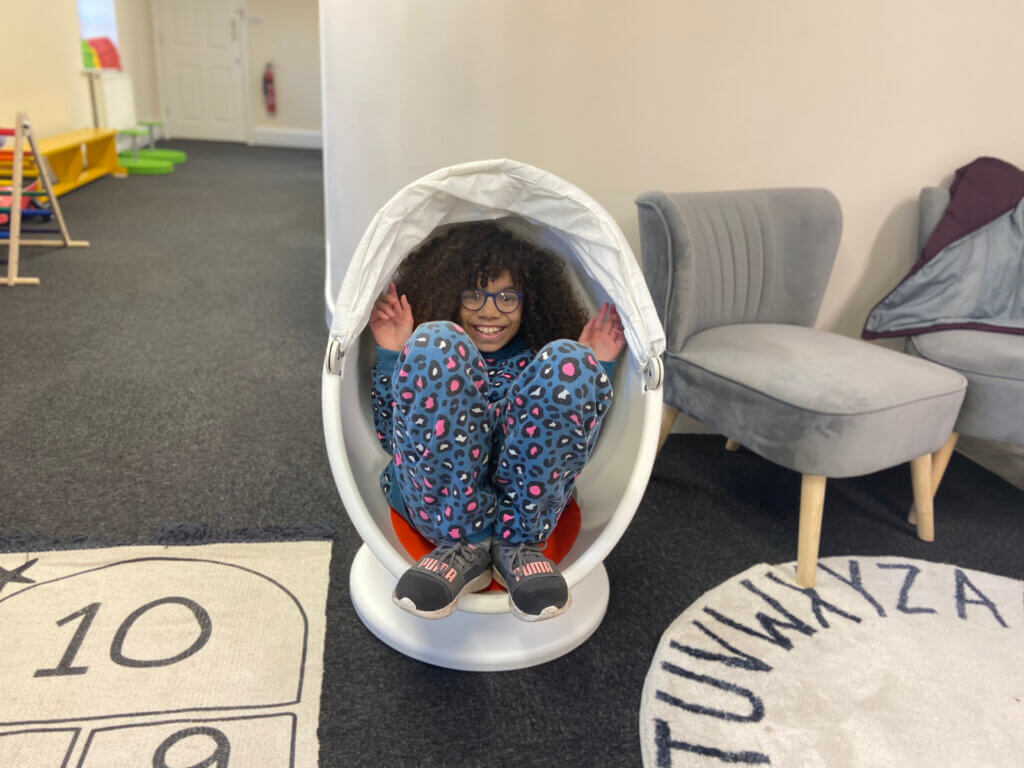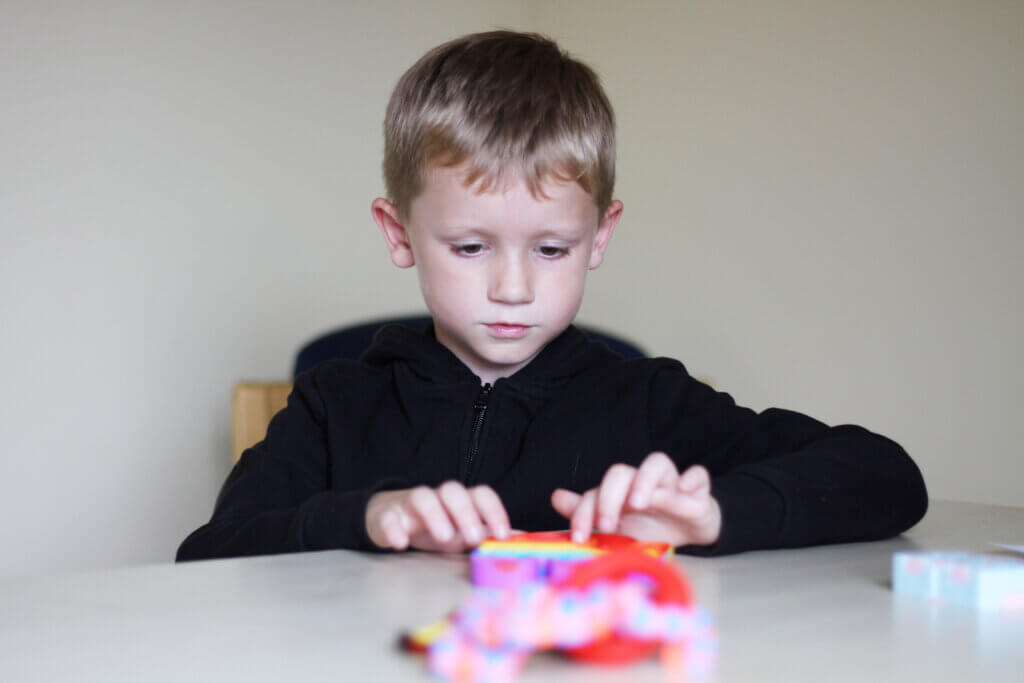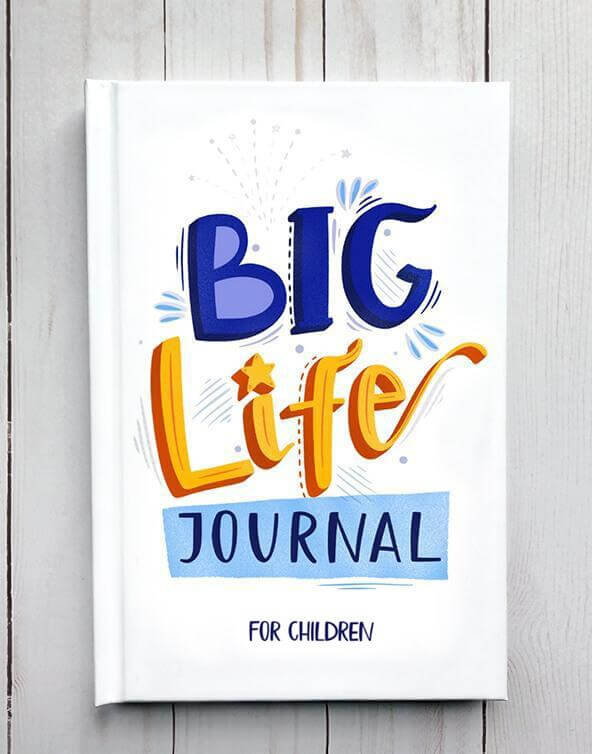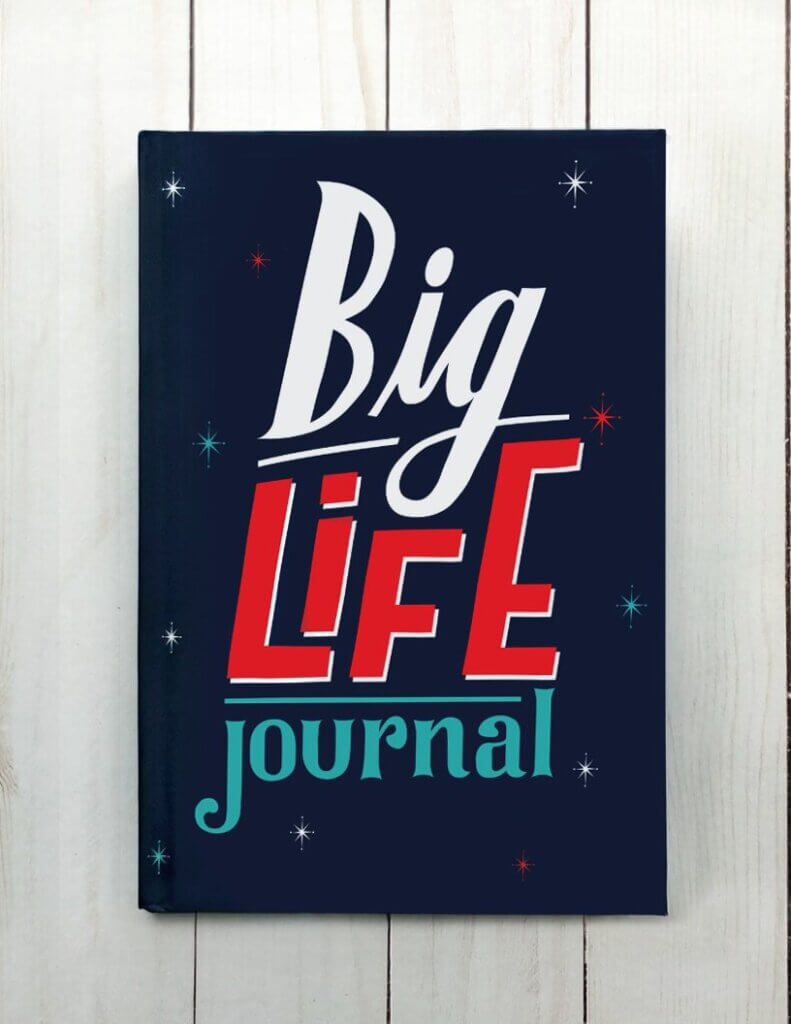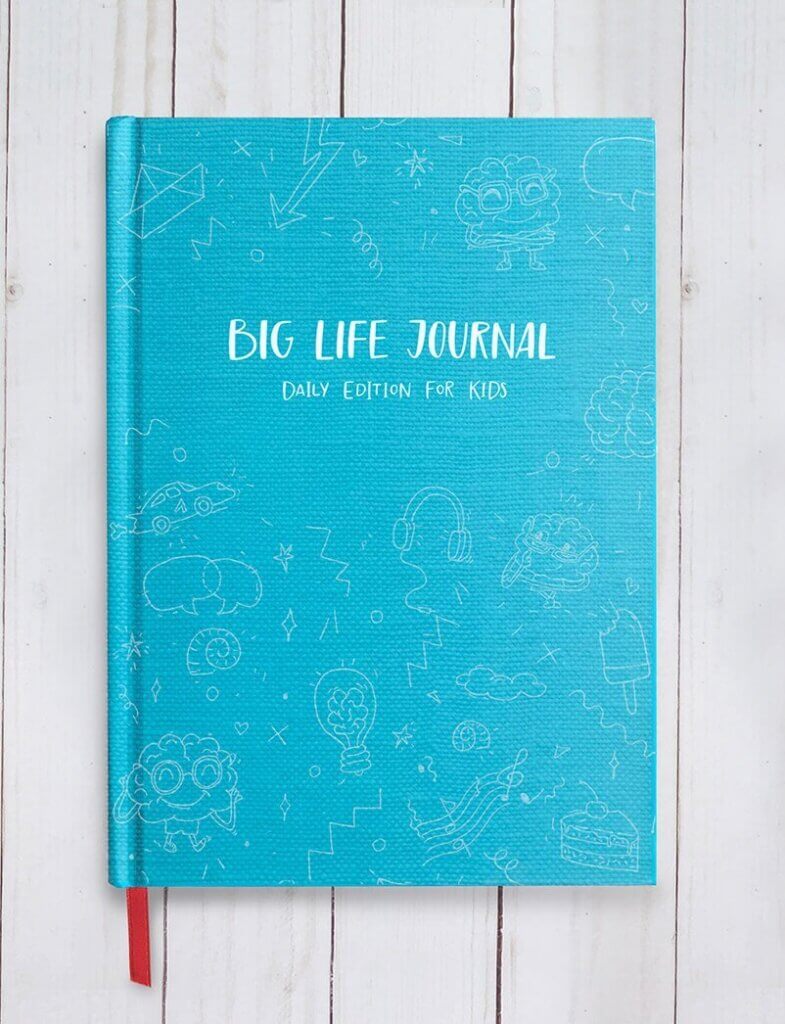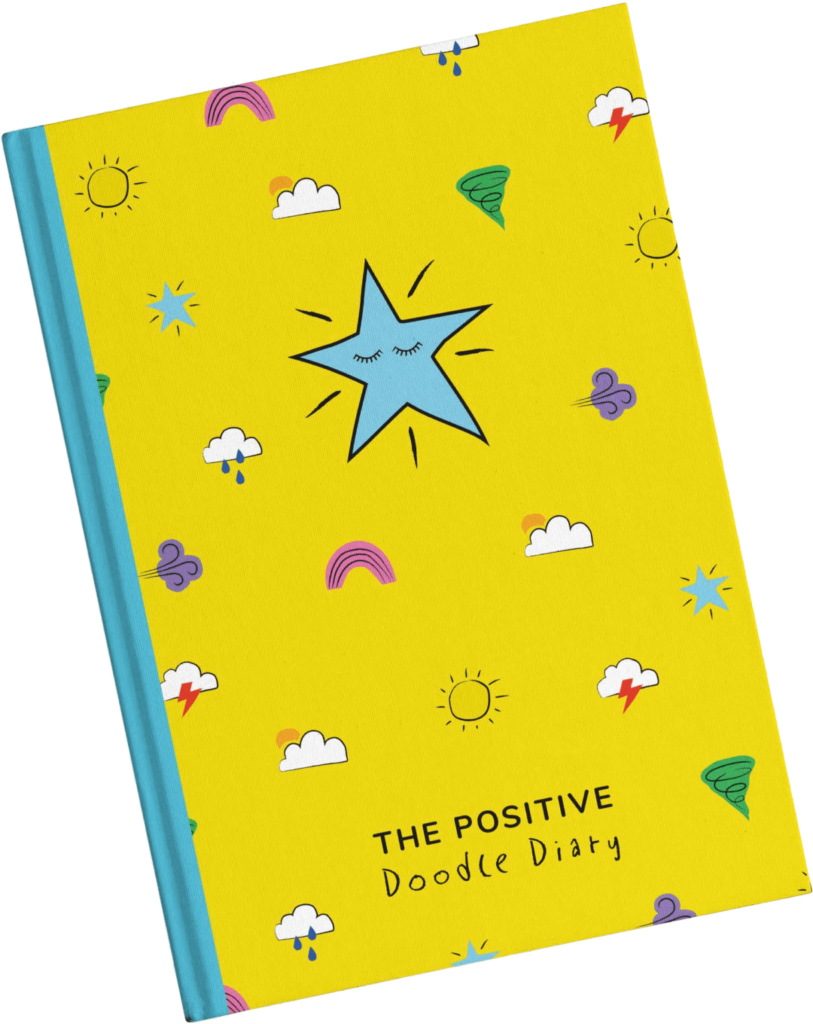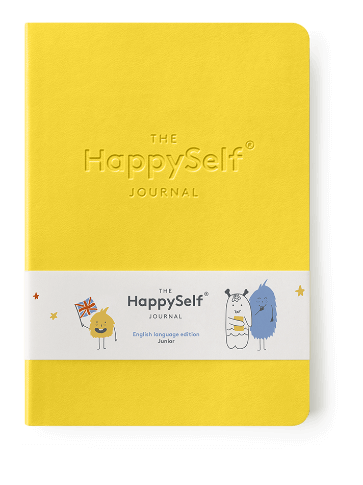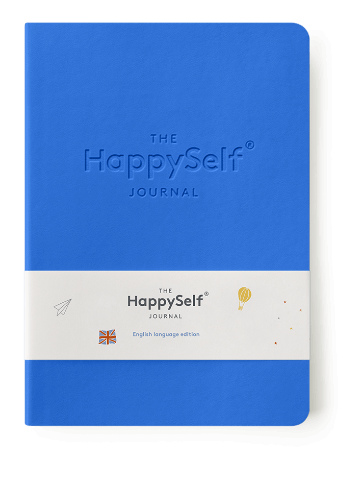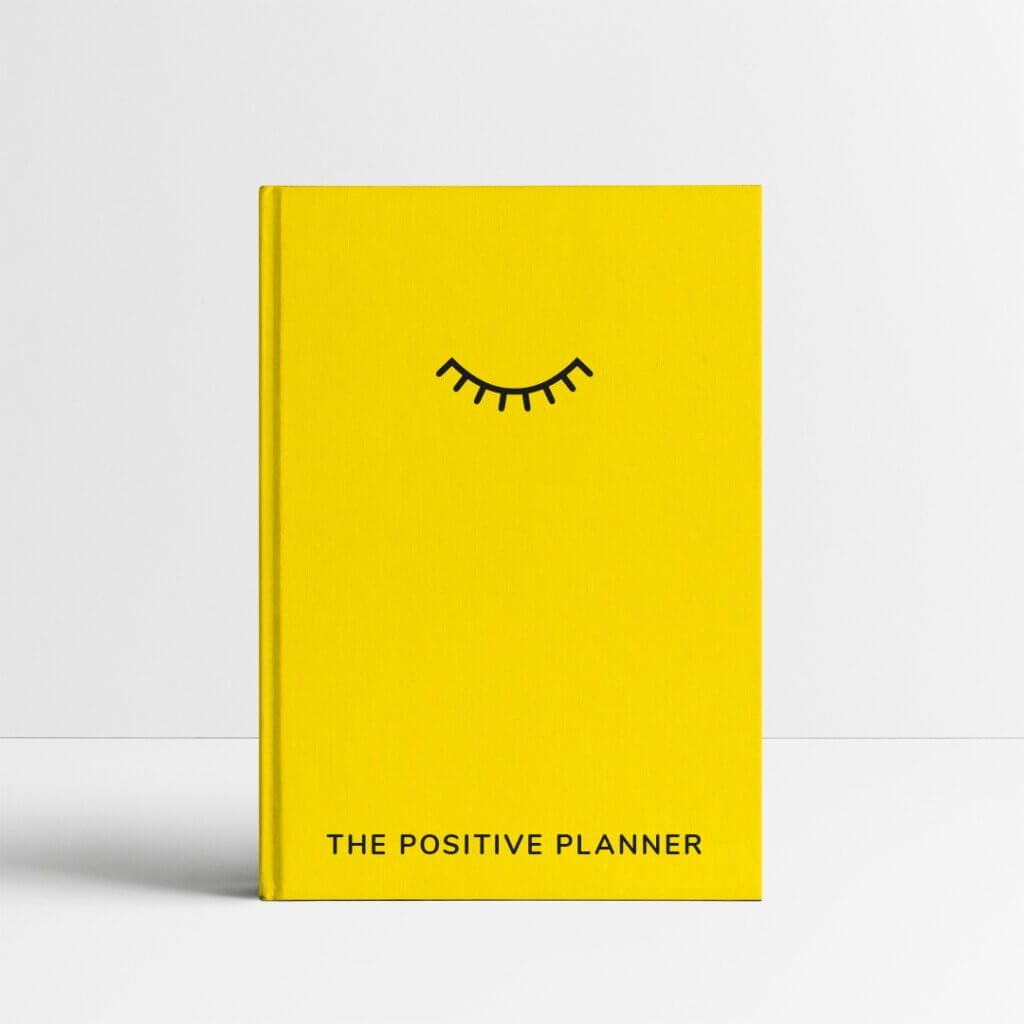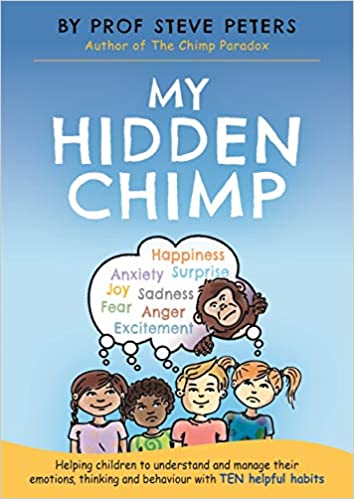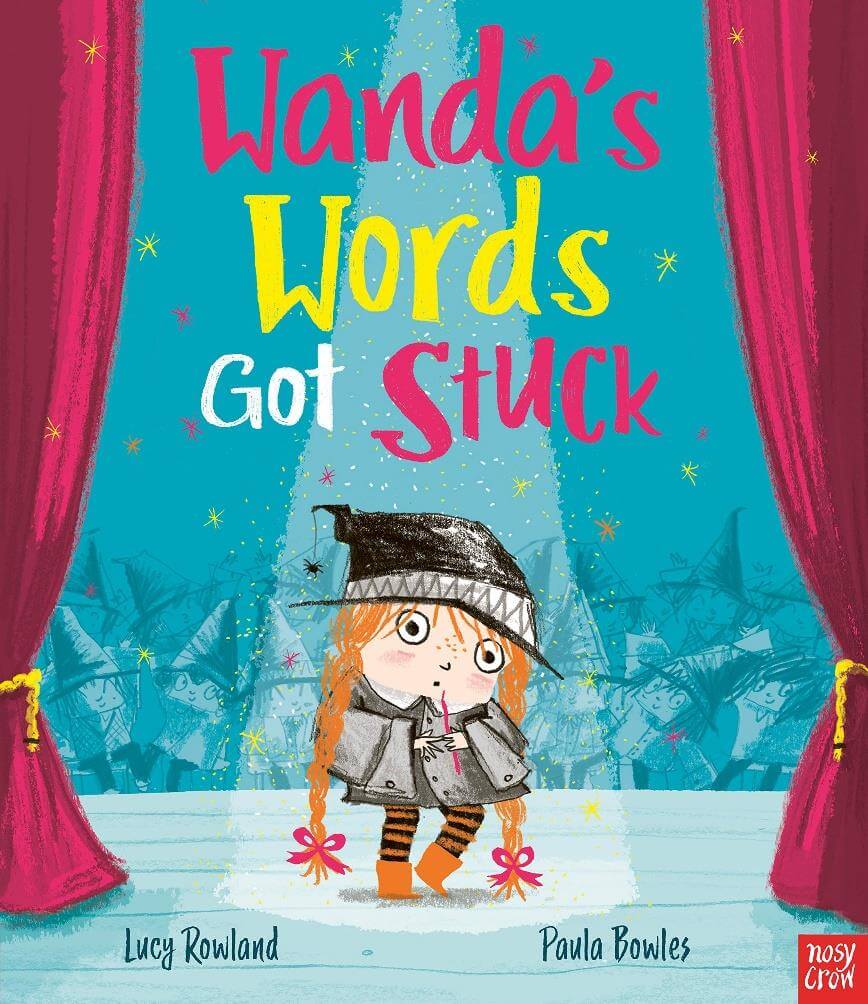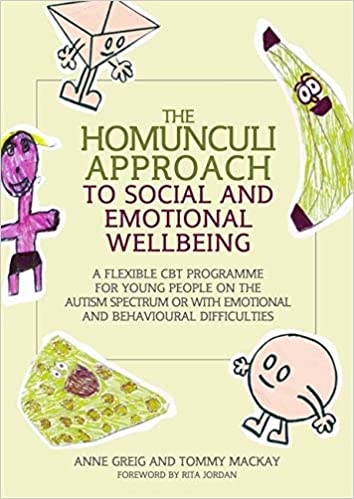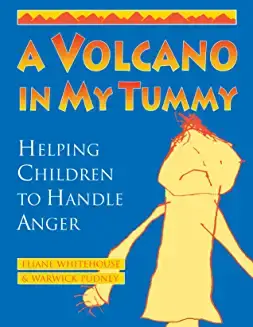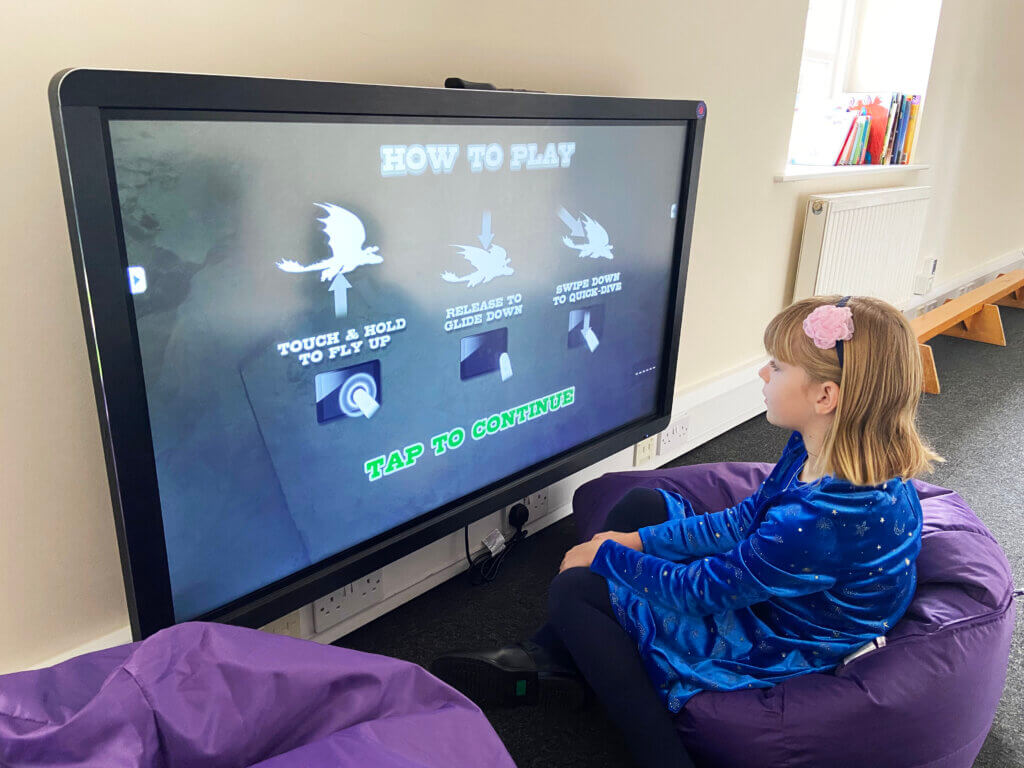bibic celebrates after receiving £225,000 of National Lottery funding to help support the running costs of the charity.
We are so excited to announce that we have been awarded an incredible £225,000 in National Lottery funding to support the work our amazing charity does offering Developmental Therapy to children and young adults with neurological and developmental difficulties and disabilities. We will use the money to support the core running costs of our charity. This helps to strengthen our resilience and sustainability, allowing us to continue to support the many families who reach out for our help each year.
The new funding from The National Lottery Community Fund, which distributes money raised by National Lottery players for good causes and is the largest community funder in the UK, will see bibic offer hundreds of families each year bespoke and holistic assessments and therapy plans.
At the same time, the bibic will be able to offer CPD accredited training to parents and professionals who would like to learn more about a specific subject relating to a young person’s neurological and developmental difficulties.
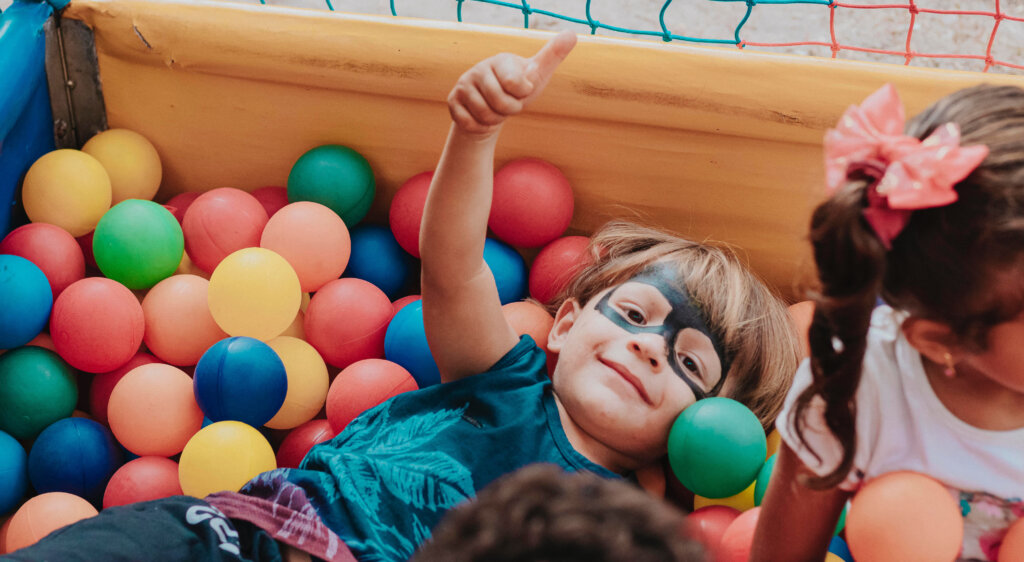
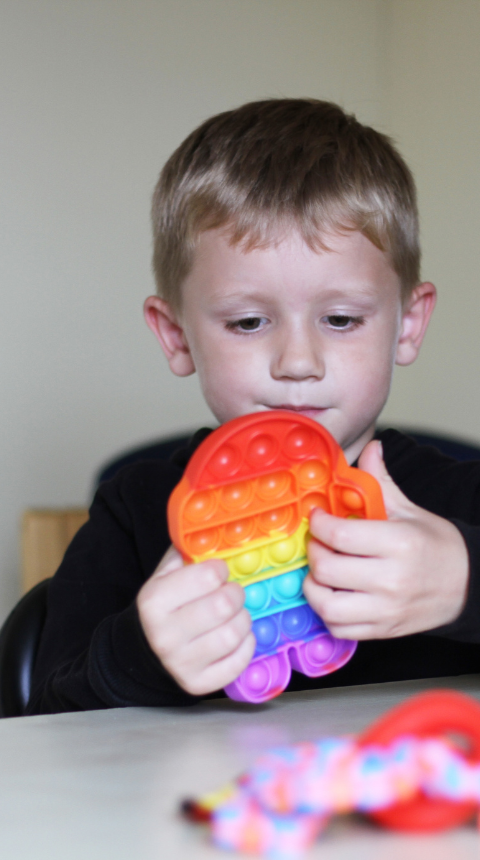
Pip Buckley, CEO of bibic says:
“We are absolutely thrilled that The National Lottery Community Fund has recognised the vital work we do at bibic. Thanks to the players of The National Lottery, we will be able to support hundreds of families with developmental therapy over the next three years. We know the transformational difference that we make in families lives and we are so proud that this has been acknowledged by The National Lottery Community Fund.”
The National Lottery Community Fund recently launched its new strategy, ‘It starts with community’, which will underpin its efforts to distribute at least £4 billion of National Lottery funding by 2030.
As part of this, the funder has four key missions, which are to support communities to come together, be environmentally sustainable, help children and young people thrive and enable people to live healthier lives.
National Lottery players raise over £30 million a week for good causes across the UK. Thanks to them, last year The National Lottery Community Fund was able to distribute over half a billion pounds (£615.4 million) of life-changing funding to communities.
To find out more visit www.TNLCommunityFund.org.uk
We are so thankful to The National Lottery Community Fund for this grant. This will make such a huge difference in our families lives
Thank you!
5 ways to wellbeing
According to research, there are five things that can really boost our mental wellbeing; connect, be active, take notice, keep learning and give.
Connect…
With the people around you. With family, friends, colleagues and neighbours. At home, work, school or in your local community. Think of these as the cornerstones of your life and invest time in developing them. Building these connections will support and enrich you every day.
How can you connect more?


Be active…
Go for a walk or run. Step outside. Cycle. Play a game. Garden. Dance. Exercising makes you feel good. Most importantly, discover a physical activity you enjoy and that suits your level of mobility and fitness.
How can you be more active?
Take notice…
Be curious. Catch sight of the beautiful. Remark on the unusual. Notice the changing seasons. Savour the moment, whether you are walking to work, eating lunch or talking to friends. Be aware of the world around you and what you are feeling. Reflecting on your experiences will help you appreciate what matters to you.
How can you take more notice?


Keep learning…
Try something new. Rediscover an old interest. Sign up for that course. Take on a different responsibility at work. Fix a bike. Learn to play an instrument or how to cook your favourite food. Set a challenge you enjoy achieving. Learning new things will make you more confident you will have fun.
How can you keep learning?
Give…
Do something nice for a friend, or a stranger. Thank someone. Smile. Volunteer your time. Join a community group. Look out, as well as in. Seeing yourself, and your happiness, as linked to the wider community can be incredibly rewarding and creates connections with the people around you.
How can you give more?

Top ten tips to manage Christmas

No.1
Keep one routine. This will help ground the individual when other areas of the day feel overwhelming.
No.2
Involve children or young adults in decisions (what decorations to put up etc).


No.3
Prepare them for the gifts they will be receiving. Don’t feel you need to wrap gifts, particularly if they may find this overwhelming.
No.4
Create a Christmas free safe space in the house that is free from decorations.


No.5
Use visuals to help them prepare for what is happening when, quantifying the activity by giving it a start, middle and end so they know exactly what to expect.
Eg. We are visiting a family friend, we will drive to their house, go in and open presents, play games and have dinner, say goodbye and drive home.
No.6
Discuss the child or young adult’s needs with family and friends.


No.7
Allow decompression time when school breaks up: don’t plan any big trips, outings or visitors for the first few days after breaking up from school.
No.8
Discuss what everyone wants to eat for Christmas, don’t just stick to the tradition of turkey for the sake of it – know that it’s okay to have your usual meal.


No.9
Towards the end of the holidays, begin to set an alarm to wake up and get dressed, have meals at regular times to re-establish routine, and be ready for the return to school.
No. 10
Slowly put up and take down Christmas decorations with your child or young adult to avoid making sudden changes – being involved in the process can help manage any feelings of being overwhelmed.

James braves the shave!
Yeovil based recruitment company Mash Group has chosen bibic as its charity partner.
bibic supporter and Director of recruitment, James, went under the clippers in aid of bibic. James decided he would have his stylish locks removed to raise some funds. He probably didn’t realise at the time that it would be his Managing Director Laura who would be in charge of the clippers!
The whole event was broadcast live over social media, and James managed to exceed his fundraising target of £500 by bringing in £690, thanks to the wonderful support of friends and local businesses.
bibic Corporate and Community Development Officer Andy Hirst watched the live head shave and says, “Bravery comes in so many different forms when it comes to fundraising and a head shave is an incredible thing to do. Whilst naturally being nervous, James was professional throughout, thanking supporters and encouraging further donations.
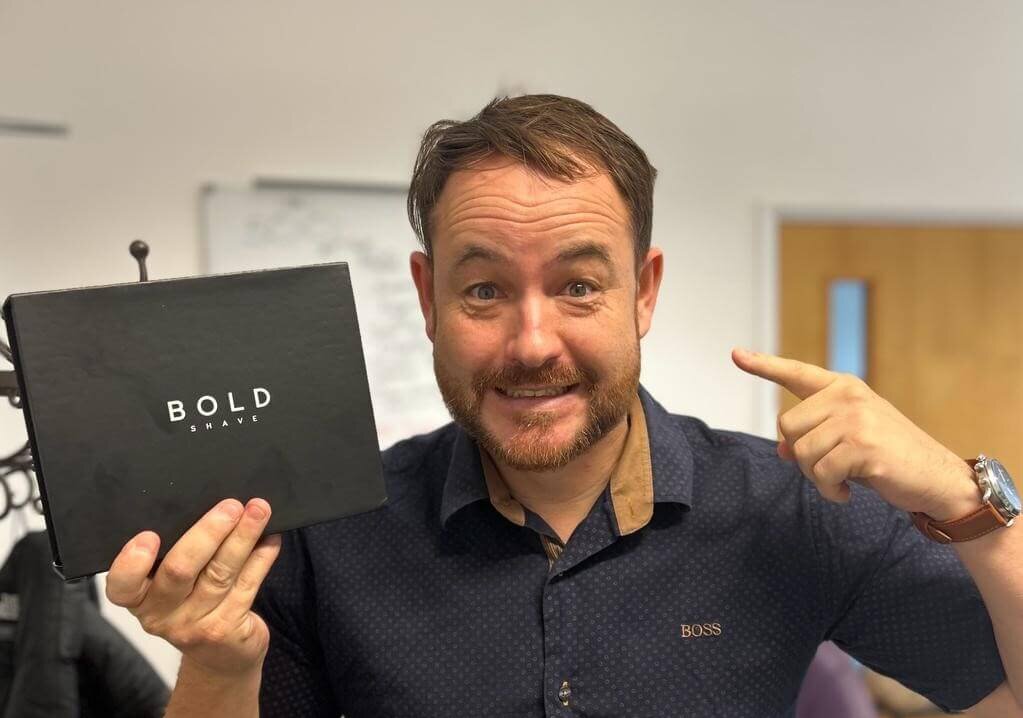
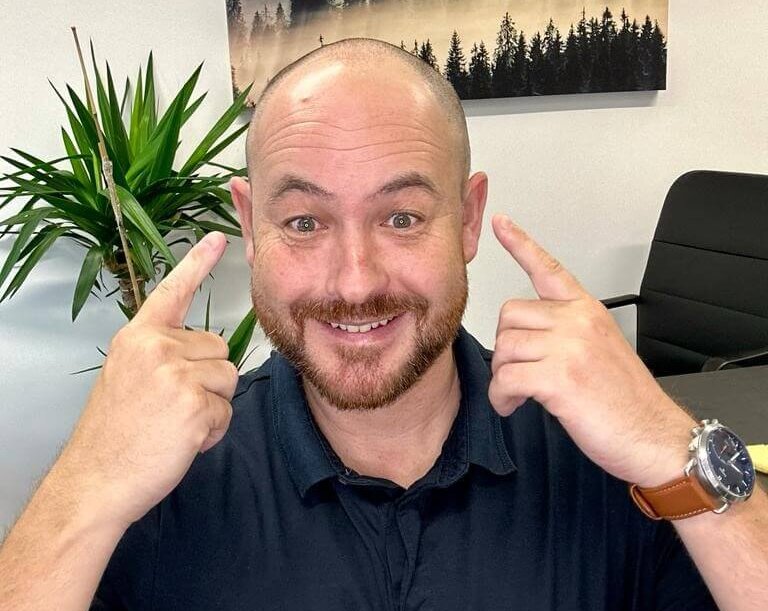
We are so grateful to James for taking this on, and the £690, which attracted an additional £172 in GiftAid, will go a long way to helping bibic deliver assessments and bespoke developmental therapy to children and young adults aged 6 months to 25 years old and training to parents and professionals.”
James commented after the event, “All the hair has gone, and it’s freezing! I would like to take this opportunity to thank each and every one of you who donated to bibic for me to ‘Brave The Shave’. I am genuinely blown away by the generosity, and thank you so much. We have raised a fabulous amount for an amazing local charity.”
James has truly entered into the spirit of fundraising by not only agreeing to have his head shaved but will also be undertaking a skydive for bibic in April 2024.
Mash group and bibic, both members of the Somerset Chamber of Commerce, met up on the chambers Cuppa and Catch up on Zoom during the pandemic.
We are delighted the charity has been chosen by Mash Group, Andy Hirst says “The provision of an online networking group by the Somerset Chamber of Commerce during lockdown has proved vital in developing lasting relationships and friendships. James and I met most weeks and now we are able to confidently work together to raise the profiles of both organisations and of course, raise money for our vital charity work”
Mash group director James adds “We are delighted to choose bibic as our nominated charity for the Mash Group and be able to support in a small way the amazing work they do. As Andy mentioned, our friendship has grown as a direct result of the networking group the Chamber set up during lockdown and we are extremely excited about working with bibic as our nominated charity”
Thank you from us all here at bibic!

A huge thank you to Five Education!
bibic supporter Five Education, based in Bristol, has been supporting bibic for five years with over £7,700 in performance-related donations.
The latest donation of £2,500 represents another great year for the company specialising in Special education needs staffing. They cover the areas of the City of Bristol, North Somerset, South Gloucestershire, Bath and Northeast Somerset, Gloucestershire, Somerset and Wiltshire. They work with primary, secondary, special schools, SEND provisions in schools, alternative provisions, (EOTASs), Pupil Referral Units, (PRUs), further education, nurseries, and residential/care.
The whole bibic team is incredibly grateful for the support in a number of ways, bibic Corporate and Community Development Officer, Andy Hirst says “Support like this from the Five Education team is fantastic, not only because it raises funds for bibic but because it means their company is growing too.
“Giving a donation related to either turnover or gross profit is a great way of supporting our charity, it reflects their growth and enables bibic to grow as well”
An extra bonus this year as an additional £500 has been donated by Team Factors who provide services to Five Education.
A huge thank you from us all!
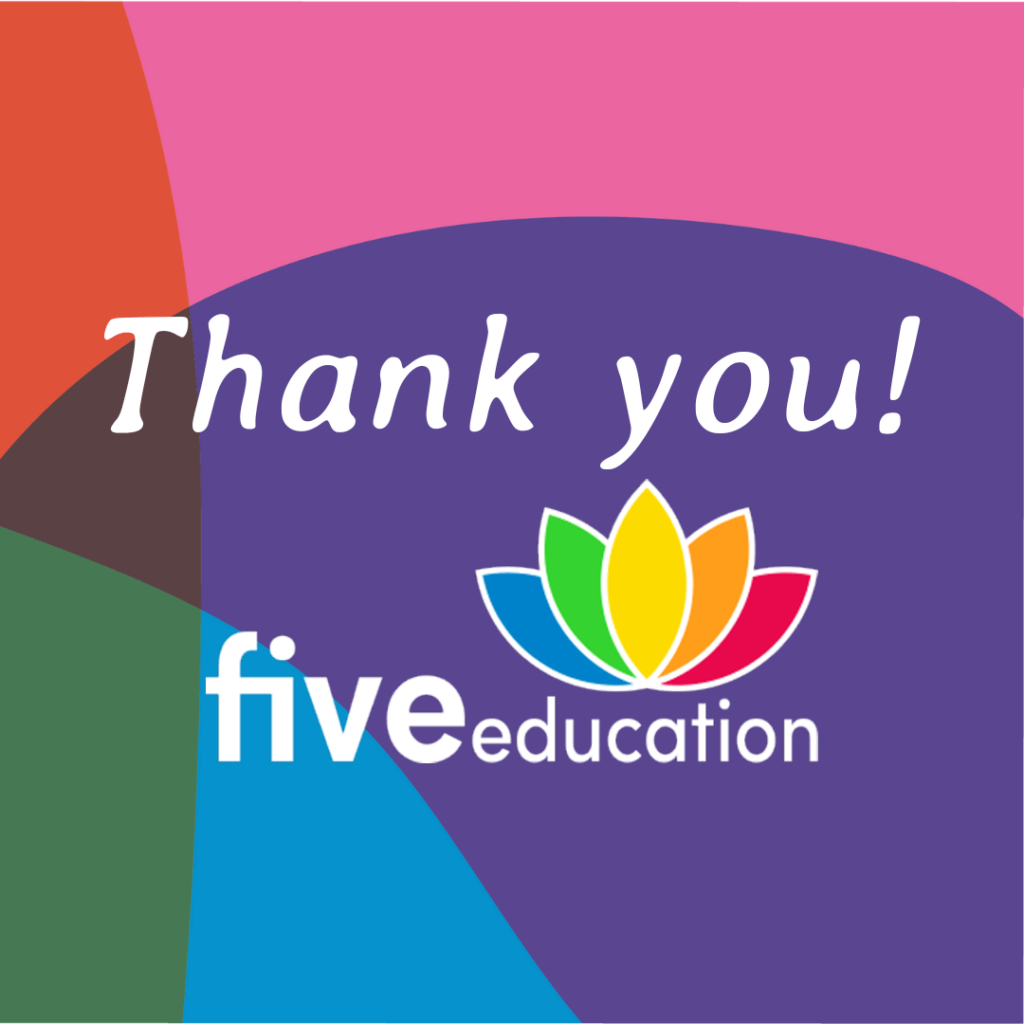
Top 10 Tips to Support Education Transitions
Any transition can be nerve-wracking, and so many individuals may feel anxious, especially when it comes to education transitions – that’s why we thought it would be helpful to provide our Developmental Therapists Top 10 tips to help your child or young adult to prepare for changes ahead.
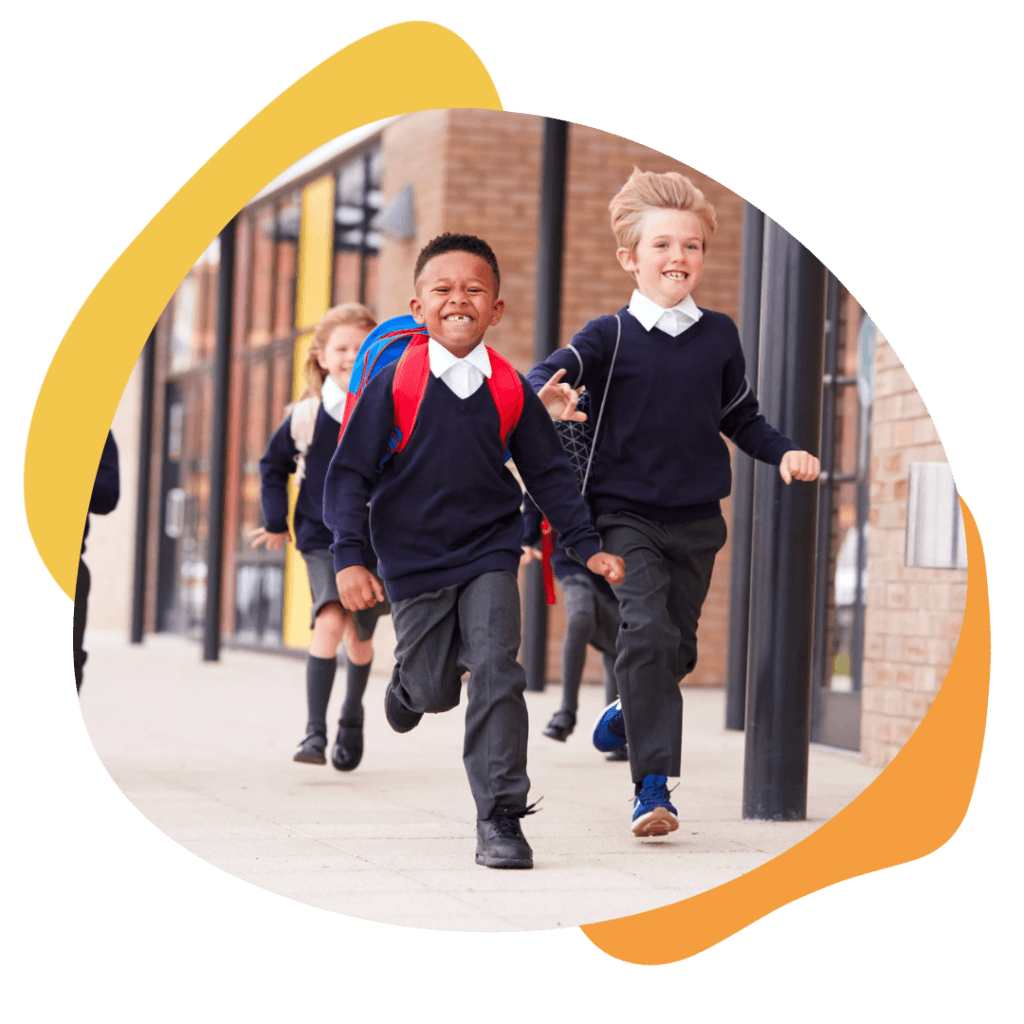
No. 1 Visit in advance
Any change can be scary, no matter what the situation, however visiting the place of education may settle some nerves, try to get to know the place they will be going, the area and where they will mainly be, such as classrooms or lunch halls. It may also help to attend an open day or similar where you can meet key staff as well so your child or young adult knows what and who to expect when the change happens.
No. 2 Practice the route
Once they’ve got to know the place, it may be helpful to familiarise them with the area and surroundings. Try to practice the route on the way there and on the way home.
No. 3 Plan and pace things well
Take your child’s or young adult’s lead and try to take things at their pace. When they are ready, try to have conversations about what they might expect, and things they may need and have things ready in advance to reduce any worry about being unprepared when the change happens.
No. 4 Remain calm and stay positive
Try to keep calm and be as positive as possible when talking about the changes and as they are happening – listen to any concerns or worries your child or young adult may have and talk them through.

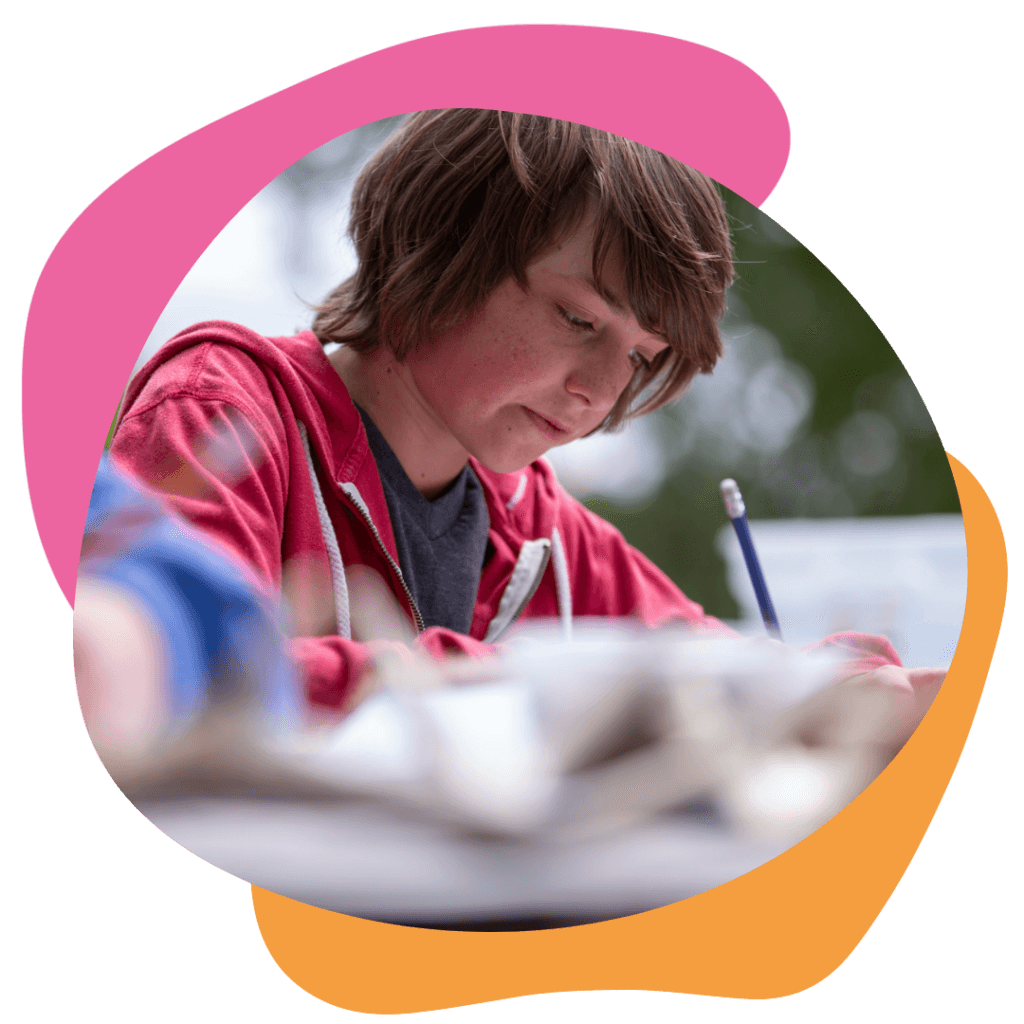
No. 5 Seek support – don’t be afraid to ask for help
There may be many support networks around, ask the place of education if they know of any and have a look yourself. There may also be useful online forums and groups you could join.
It’s okay to ask for help and seek support – ask friends and family, staff or others you trust for help with something if you feel you need it, sometimes all you need is to talk something through with someone.
No. 6 Communication is key
Try to encourage as much communication as possible, and ensure your child or young adult has many different people in different settings to talk to if needed. Try various different ways to communicate and find what works best for them, this could be via text message, email, talking face-to-face or notes. This could be with staff, parents/ carers or other family or friends.
If needed, give them sentence starters, and conversation topics to help build friendships.
No. 7 Give them space to decompress
Educational settings have a lot going on, and sometimes this can be overwhelming. When your children or young adult returns home, give them some time and space to decompress.
No. 8 Note key dates
Find all the key dates within the year, such as events, holidays, deadlines etc… and put them on your calendar to ensure they don’t miss anything and allow time to prepare.
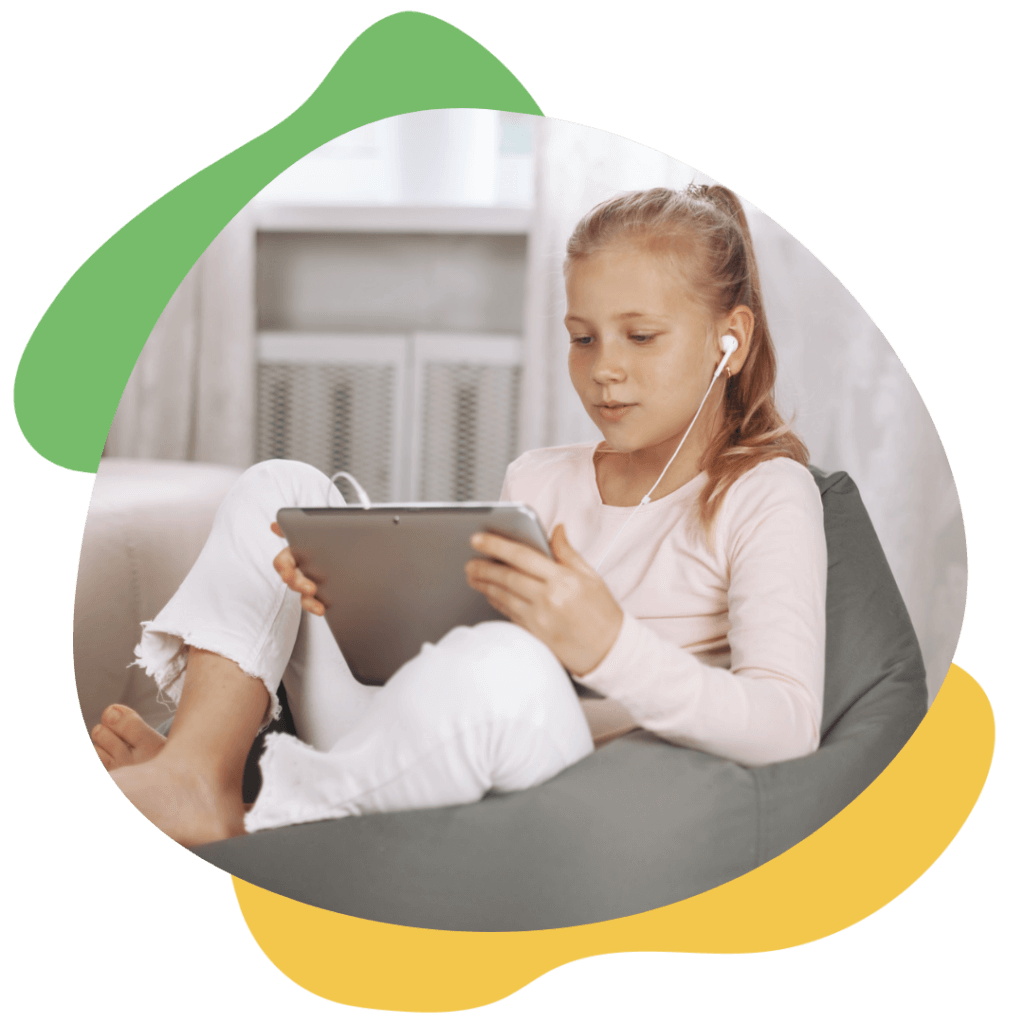

No. 9 Use social stories
Try using social stories to talk your child or young adult through what is going to happen and when – this may help prepare them and give them time to know what to expect.
No. 10 Colour code timetables and maps
Try colour-coding lessons, and a map of the school, so your child or young adult knows where to be and when to be there.
Join our free Live Q&A on Education Transitions on 27th June 6pm (hosted on Facebook)
We have some exciting news!
This year we’ll be launching our first ever Service User Forum – ‘Brains of bibic’.
This is an exciting opportunity for children and young adults who have visited bibic to get involved in four sessions to help us have a better understanding of what works well at bibic and what we could improve.
We would like to invite children and young adults who have visited us here at bibic to join our forums and meet with us every three months.
During these one hour sessions you will get the opportunity to join in with some fun activities whilst sharing your experiences of bibic.
You can share with our team what you think we are doing well and what changes you would like to see happen at bibic. This will make the experience even better for the families who visit us.
We will be running sessions for four different aged groups.
- 8-12 years old (to be attended with parents)
- 13-15 years old
- 16-18 years old
- 18 to 25 years old (for these ages parents will still attend but will be welcomed into one of our family rooms to enjoy a refreshment whilst their children attend the session)..
We think this is a great opportunity for you to play an active part in what happens at bibic
Our bibic Therapists agree that by taking part in these groups it can build your child’s independence, give them a voice and improve confidence and self-esteem. It can also promote a sense of belonging in a world where they may feel like they struggle to fit.
If you feel that your child or young adult would like to be part of this forum and help to shape the future of bibic or you would like more information, then please get in touch with us via email at serviceuserforum@bibic.org.uk
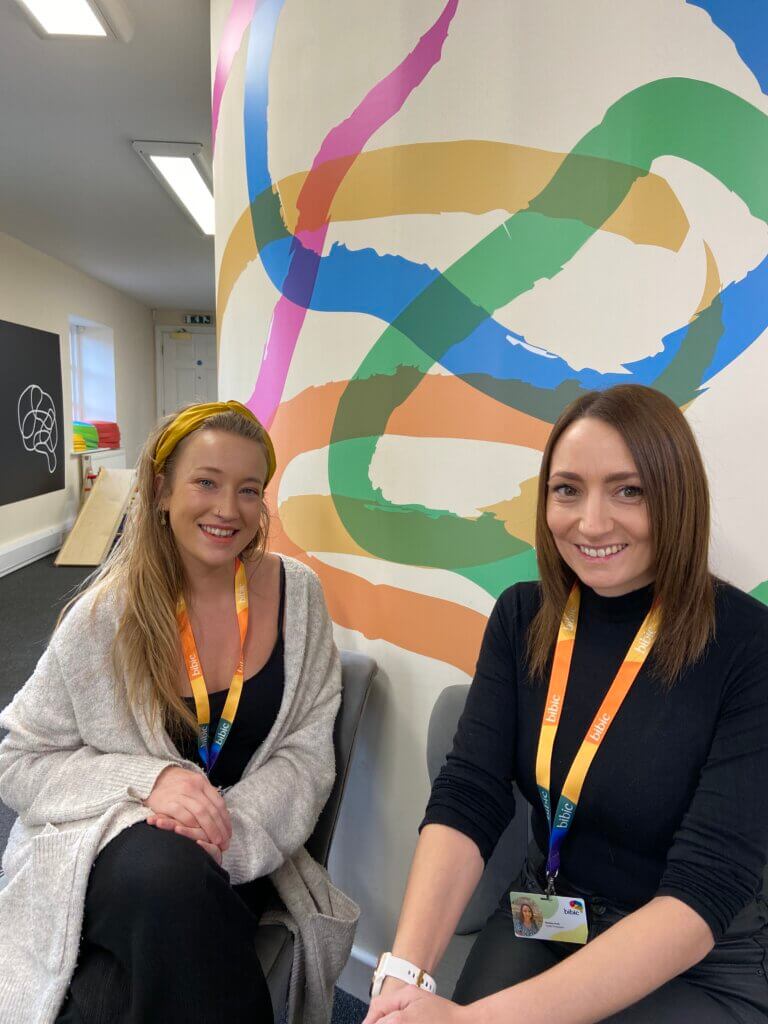
Take a look at our bibic Therapists book recommendations for managing behaviour in children and young adults…
A Volcano in my Tummy
“A volcano in my tummy is a resource book containing activities to develop awareness of anger as well at strategies to manage it.”
The Hidden Chimp
“The Hidden Chimp is a book designed to teach children about their emotions and emphasises that the ‘chimp’ is out of control rather than placing the blame on the child themselves making it easier to understand and adjust behaviours.”
Sitting Still Like a Frog
“Sitting Still Like a Frog is a book and CD that teaches children mindfulness in a fun and child friendly manner.”
Homunculi book
“The Homunculi book is designed specifically for children and young people with ASD or with emotional challenges, based on CBT, it focuses on the ‘homunculi’ investigating their human and trying to work out what is going on, building social and emotional resilience.”
One of bibic’s donors tells more about why he has supported us for so long.
“During mine and my wife’s long marriage we both occasionally supported a large number of different charities but we supported only bibic for the entire period. I have continued and increased my support now.
Our reason for continuing to support bibic for many more years than any of our other charities is the result of their valuable use of our donations and regular reports on the improvements of the children and young adults they support.
My first knowledge of bibic’s work was in the 1970’s, when a member of the team left a card money box for use by friends and my large family for loose change.
Money was sent to bibic on a regular basis. In the early months I was starting my career studying hard to pass exams. This was a good opportunity to strengthen our relationship with bibic and we have supported them for 30 years.
I had always been keen on all sports and was determined to continue and develop this during my working career. My wife had been involved with a number of my sports and as I took on more projects her support was absolutely essential and she supported and accompanied me at many Regional and National events. Our work was rewarded by the offer of visits to several members of the Royal family.
We were both invited to join the Queen and Duke of Edinburgh at a garden party at the Sandringham royal residence and we also met Anne and Diana. I met Prince Charles twice while I advised the Princes Trust.
We have not been able to visit bibic, but we have developed excellent friendships.
I am keen to continue my friendship and support as long it is possible and in addition to my support I will continue to support special occasions e.g. providing funds for Christmas presents at the Centre for children who come to see you.
I have already promised a donation towards your anniversary.”
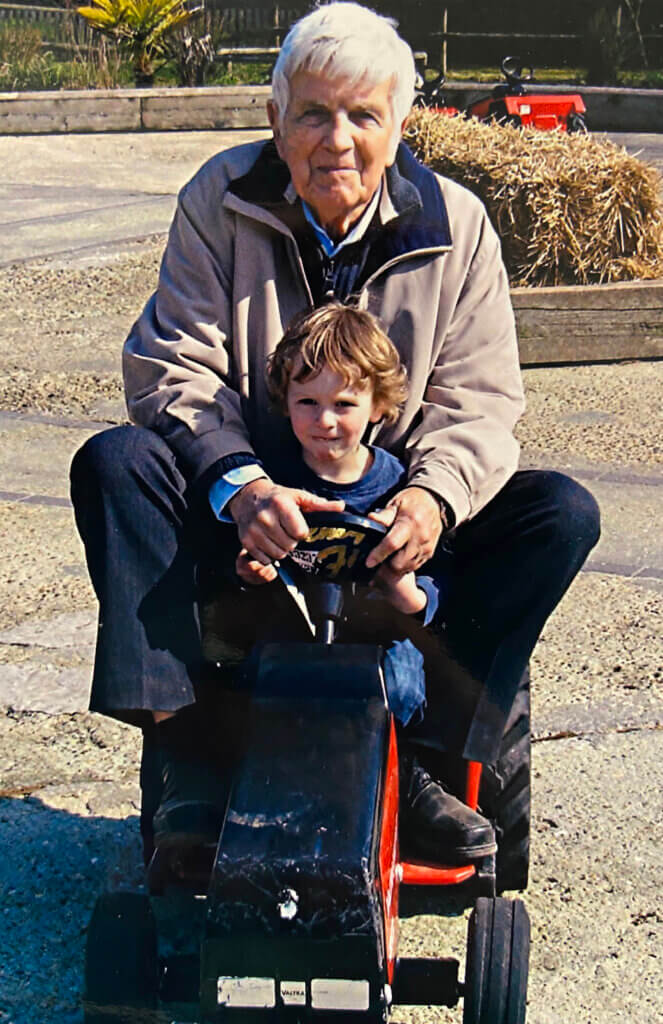
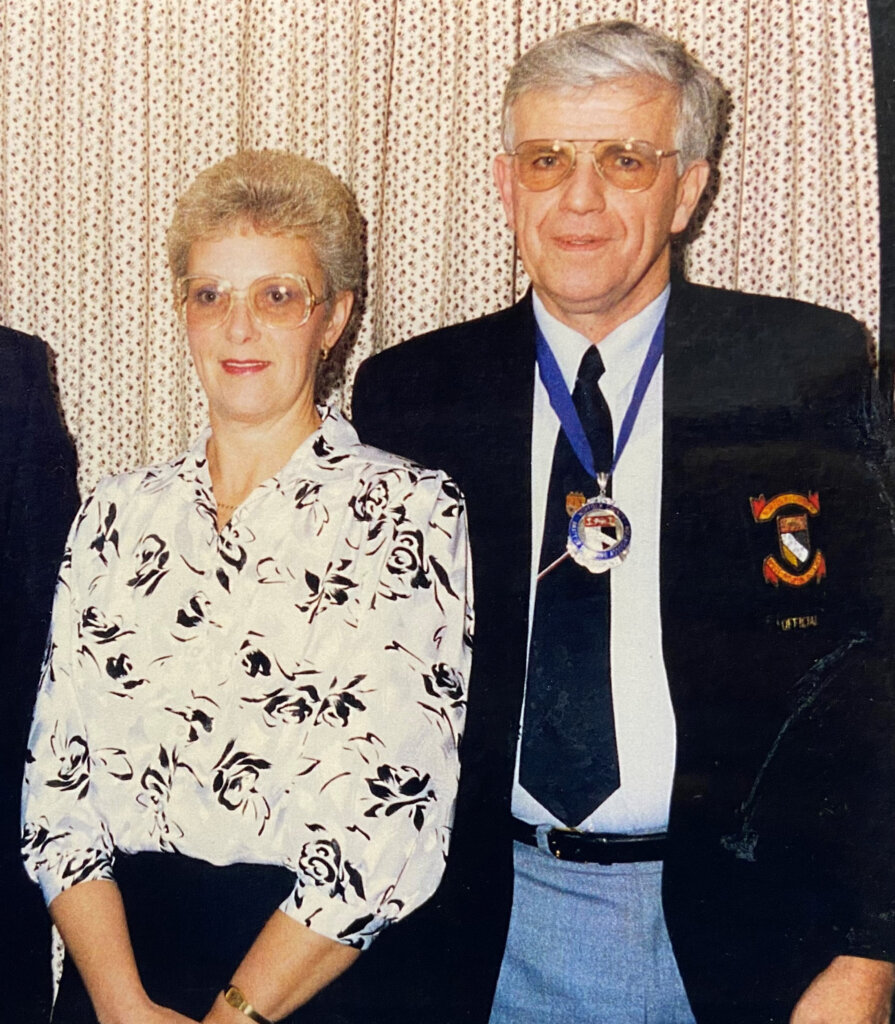
We are so grateful for John’s continued support over these 50 years – and look forward to what the future holds for bibic in our mission to support children and young adults.
To support bibic, please make a donation or find out how you can get involved in supporting us too!
Thank you!
On Monday 26th September 2022 we were delighted to celebrate 50 years of transforming children, young adults and families lives. So many of our friends and supporters joined us for the day including our Trustees, families, donors, volunteers and many more. It was wonderful to have so many of our community come to celebrate with us. This day marked the reveal of bibic’s new branding including included our new logo and website and the release of our Impact Report.
We launched our new branding to ensure we are fit and ready to support families dealing with neurological disabilities and difficulties for another 50 years. We now celebrate our new branding and focus on how we can support families for the next 50 years. Our new brand was developed to better reflect the wide range of individuals and families we support and to build awareness of both the service we provide and the positive impact that developmental therapy can have.
In tandem with our brand launch we released our landmark Impact Report, which contains the findings from an in depth Monitoring and Evaluation programme undertaken with our bibic families. bibic was founded in 1972, and in the last 50 years we have supported over 20,000 children and young adults and their families. The findings from our Impact Report are remarkable. The report demonstrates the difference we have been able to make to children and young adults who have been through our doors, our Theory of Change, and the experiences of the families we have been privileged enough to work with over the years.
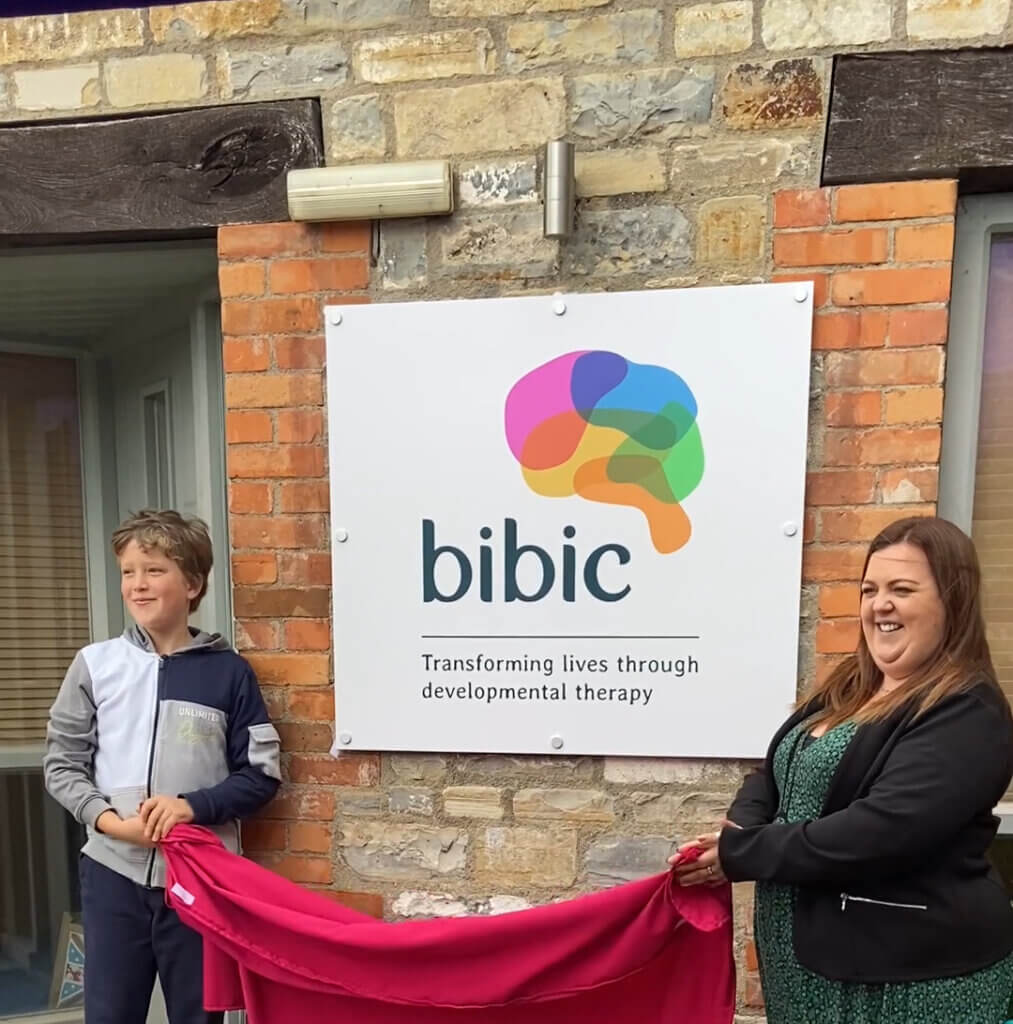
Please do take the time to read our Impact Report, and let us know your thoughts
Our therapists share their favourite fiddle toys of summer 2022 and the reasons why they like them so much.
Tabby’s favourite fiddle toy is… Pop Tubes!
“My favourite fiddle toy for this summer is the Pop Tube because they make an amazing noise and they’re great for fiddling as you can stretch them, squish them and bend them!” – Tabby

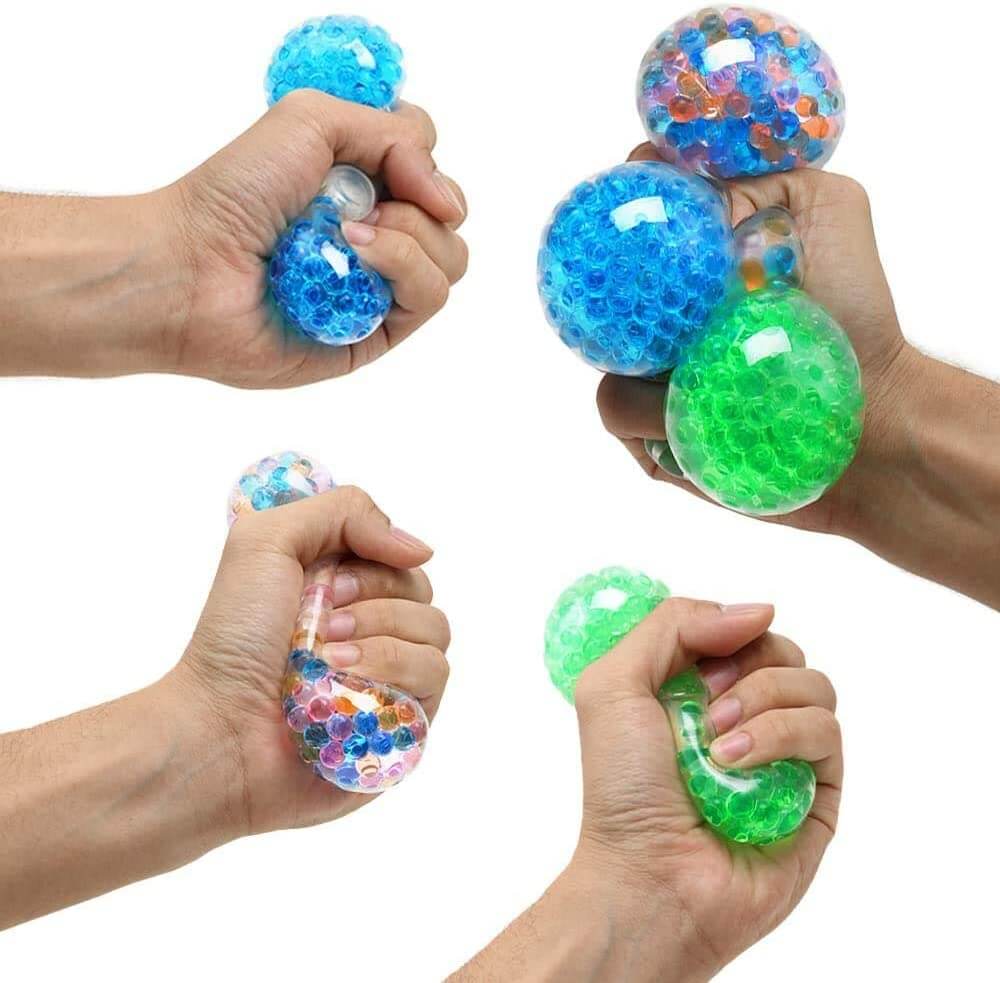
Jessica’s favourite fiddle toy is… Water Bead Ball!
“These sensory water bead balls are great to squish and squeeze. They are super great for physical and emotional stress relief. Squeeze as hard as you can and boost your mood and energy.” – Jessica
Chelsey’s favourite fiddle toy is… Pop Snappers!
“I love the sound and the proprioceptive feedback from squeezing it. I usually like having one in each hand.” – Chelsey
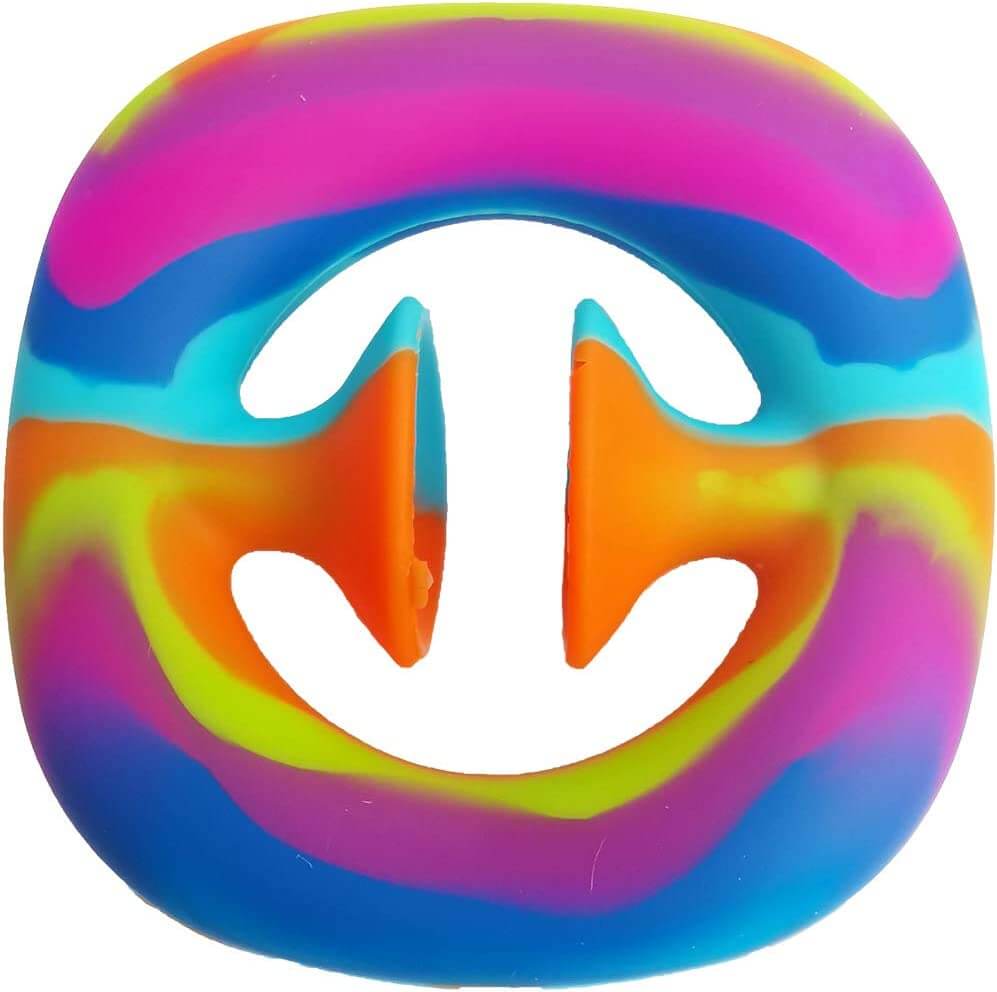
Natalie’s favourite fiddle toy is…. Shawe Building Blocks!
“I like these as they are interactive and have multiple uses, not only do they provide something for the individual to fiddle with, they also can be used to construct different shapes. You can just fiddle with one of them, or two clicking them together or building with them.” – Natalie
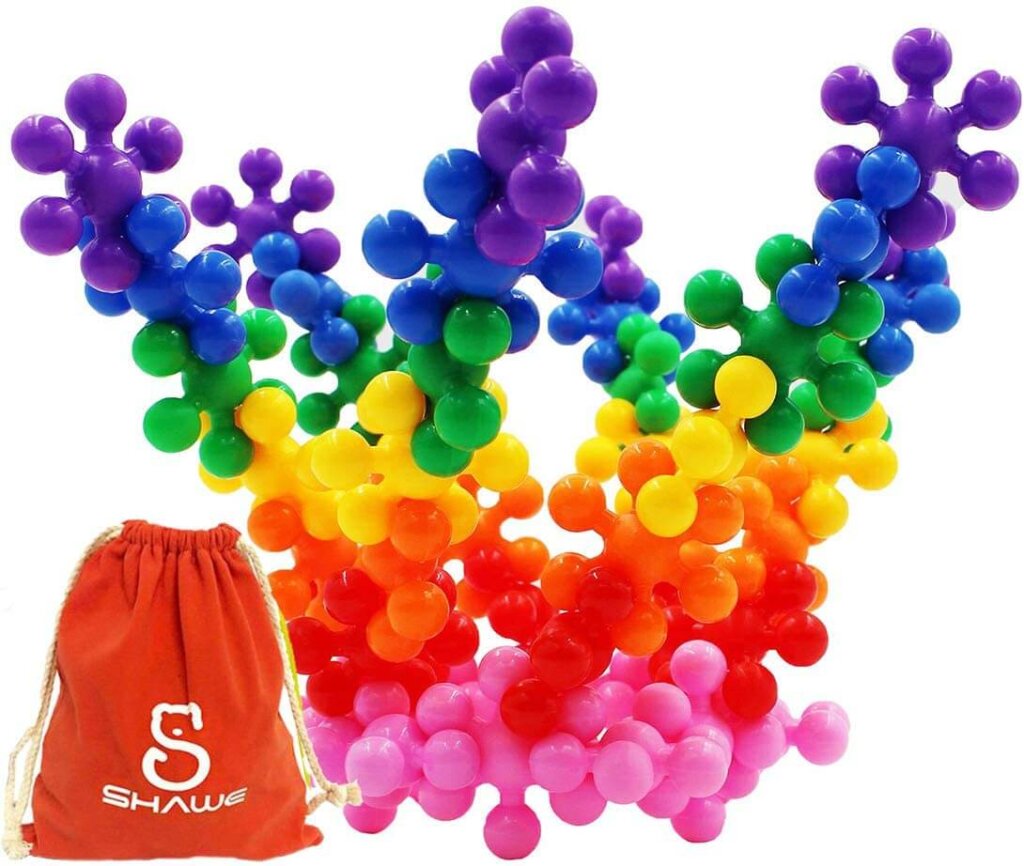
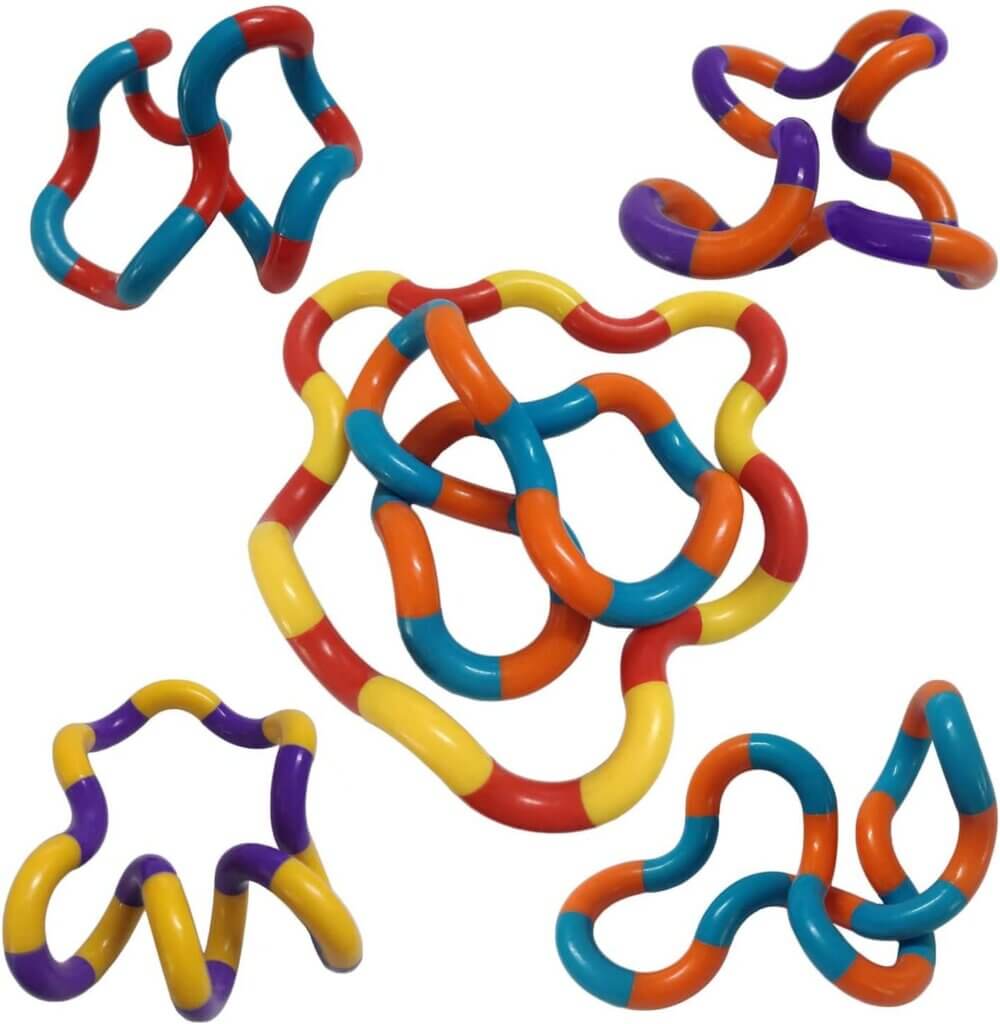
Claire’s favourite fiddle toy is… Tangle!
My favourite fiddle toy changes all of the time, but right now it’s the tangle, I enjoy moving it around and creating different shapes with it! – Claire
Jess’ favourite fiddle toy is… Wooden Pebble!
“The pebble is a good alternative and can be brought or found on the beach, I like it as it provides calming input.” – Jess

Clare’s favourite fiddle toy is… Magic Rainbow Ball!
“It’s so engaging and there’s a challenge and purpose to it, so it provides a really good break between doing activities during assessment.” – Clare


Top tip – think outside the box!
The beauty blender is a plain alternative to squishy – a great way to provide calming input, as well as the silicone make up remover pad which also can fulfil sensory needs, both are great and a cheaper alternative!
If you would like to explore sensory more for your child or young adult, why not take a look at our sensory assessment?
For more helpful tips and advice – follow us on social media!
Our bibic Therapist’s have put together a few book suggestions to support your child or young adult with sensory processing, take a look below…
Books
Sensory seeking sloth
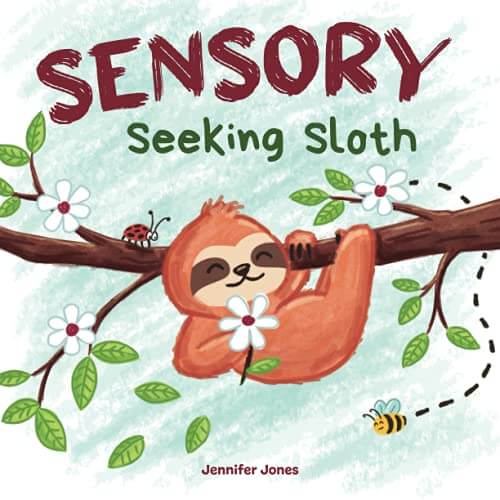
The Sensory Sloth book series is a book series for all ages and offers comprehensive approaches for children presented in a fun way.
The Out-Of-Sync Child, Third Edition: Recognizing and Coping with Sensory Processing Differences
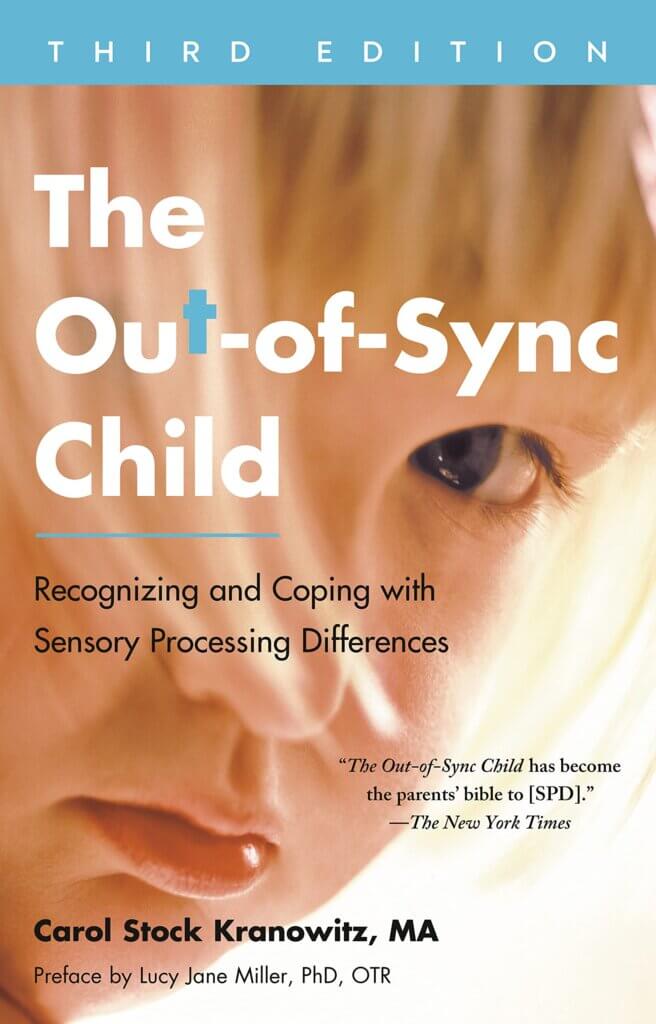
This book that explains Sensory Processing Difference (SPD)
The Out-Of-Sync Child Grows Up
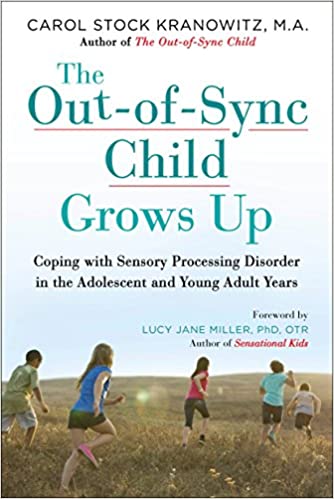
This book picks up where The Out-of-Sync Child left off, offering practical advice on living with SPD, covering everyday challenges as well as the social and emotional issues that many young people with SPD face.
Interoception: The Eighth Sensory System
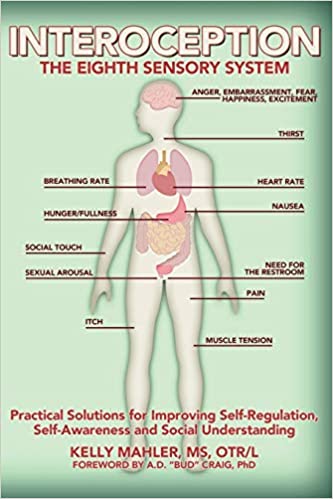
Many people take it for granted, but one of the most important skills we have is being able to understand signals from our body. How you know if you’re hungry, thirsty, tired, etc. are key abilities to live a healthy life.
These are also skills that those with autism tend to lack. Kelly Mahler’s newest book gives professionals and parents a new way to consider teaching these talents to individuals with ASD. She describes the clear link between interoception and many important skills such as self-awareness, self-regulation, problem solving, intuition, and many more.
Sensory Circuits: A Sensory Motor Skills Programme for Children
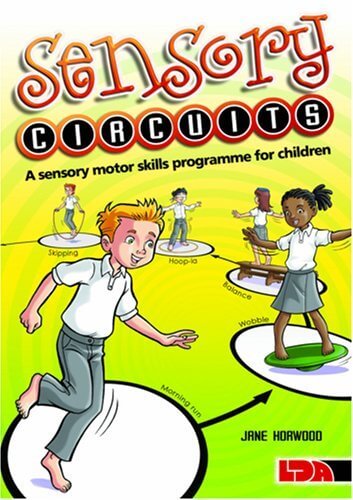
This book is a great one for teachers, aimed at schools and helping in the classroom!
Apps
Magic Fluids

Magic Fluids is a relaxing, colourful drawing app that will help you calm down and relieve stress, or be creative and make aesthetic digital art. It is the best time waster!
Sensory Plazma

Plazma is a simple calming and relaxation app for people of all ages. It is visually calming and suitable for a range of abilities. Tap buttons to change effects. Tap and drag the screen to change the bubbles. Plazma has no adverts, no settings screen and no in-app purchases.
Sensory Electra
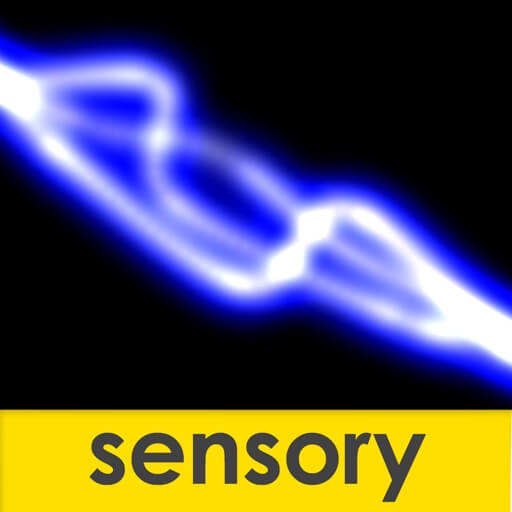
Electra is a simple stimulating app for people with specific support needs.
It responds to taps, presses & up to 3 finger touch.
Sensory Electra is a simple stimulating app for people with special/complex needs of ALL ages. It is visually stimulating and suitable for a range of abilities.
Sensory Treat

Sensory Treat was designed by parents of children with Sensory Processing Disorder and in conjunction with professional advice from over 60 occupational therapists around the world, including Dr. Winnie Dunn, OTR, FAOTA.
For more advice, tips, stories and more, follow us on social media!
The National Lottery Community Fund has awarded bibic a huge £9,632 towards the salary of one of our newest therapists Clare. This funding will help us meet the incredible demand for our services which continues to grow every day, allowing us to continue to help children and young adults with neurological and developmental difficulties by providing holistic therapeutic programmes.
bibic programmes help parents/carers and teachers better understand the needs of the individual and use strategies suggested by bibic therapists to help them thrive in the world around them.
We help children and young adults understand themselves better and live more independent lives; they become more confident and look forward to the future because of bibic’s therapy programme; several have gone to university and many are in employment citing bibic as playing a key part in their progress.
With the demand for our services being higher than ever before, we are so grateful to the National Lottery Community Fund to enable us to continue the important work that we do.
“I would like to thank the National Lottery Community Fund for their continued support. Their funding allows me to be able to support children and young people with their difficulties, as well as celebrating their strengths and achievements. I love working with our families, and hearing all about what has improved in their lives and how they have benefitted from our support. Our work not only helps the individual, but their whole family, and it is so important to make their lives the best they can be.” – bibic Developmental Therapist, Clare
We are proud to support the good work you do, using funding raised by National Lottery players for good causes. It’s thanks to them that we give out more than £600 million to charities, community and voluntary groups each year.
– National Lottery Community Fund
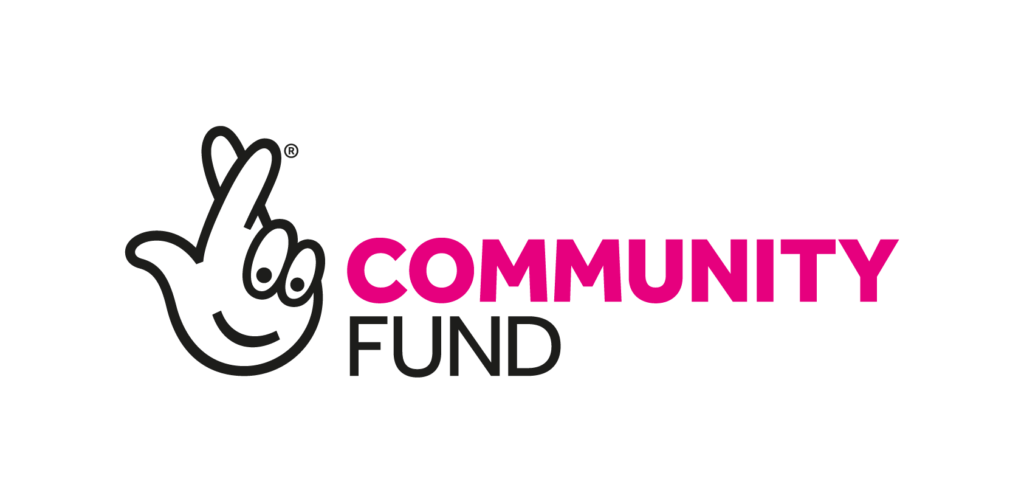
Our small charity, bibic in Langport, Somerset has been awarded a fantastic grant extension of £33,325 over one year by BBC Children in Need now the previous three-year funding has come to an end. This grant will fund bibic Developmental Therapist Claire Williams’ salary, staff training and activity costs to help make a difference to the lives of children and young adults facing neurological and developmental challenges nationally.
We provide holistic therapeutic programmes for individuals aged 6 months to 25 years. We support a wide range of conditions and difficulties, such as ADHD, ASD, Dyslexia, Cerebral Palsy, Downs Syndrome, Global Developmental Delay and many more, with or without a diagnosis. This funding will help us provide a lifeline for many families who have been fighting for support for their young person.
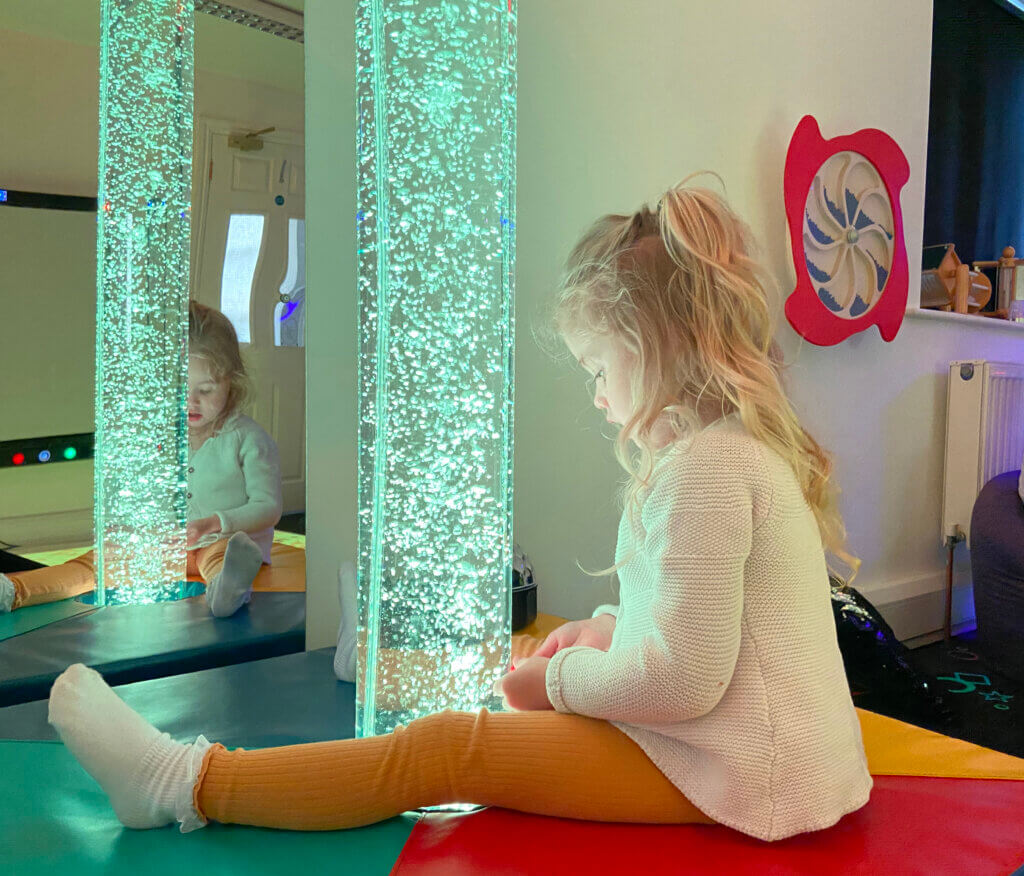
bibic therapy supports every need the individual has with our holistic approach, discovering their strengths and difficulties, allowing the individual to live happy fulfilling lives.
Our assessments cover a wide range of areas, we look at every stage of development for that individual and use educational testing to look at their abilities. Bespoke therapeutic plans are then developed by our experienced team of therapists for families to be able to put into place at home. These can also be used within schools to further support the child or young adult within an educational environment to help them reach their potential as well as help everyone around them understand their strengths and difficulties and how to support them.
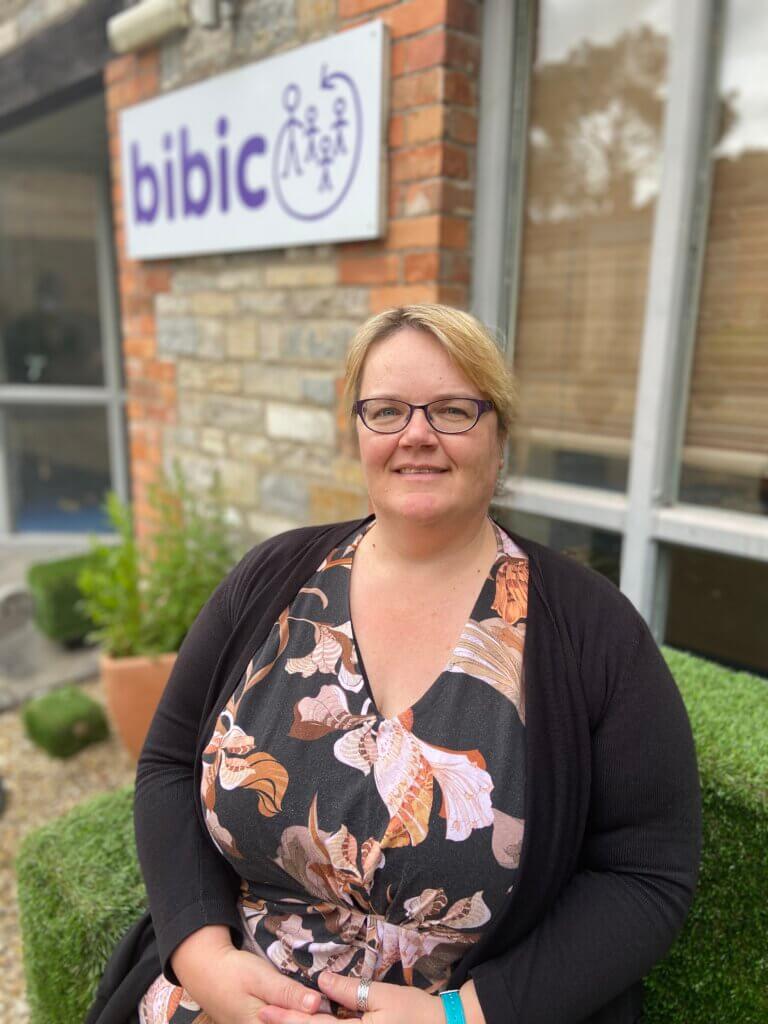
Claire Williams, bibic Developmental Therapist said, “We are so grateful to BBC Children in Need for funding a therapist for another year. The need for our services has increased dramatically and is needed now more than ever before. This funding recognises the work we do at bibic with families, and this means we will be able to support more children and young people to understand themselves and take positive steps towards their future.”
About BBC Children in Need
BBC Children in Need’s vision is that every child in the UK has a safe, happy and secure childhood and the chance to reach their potential. The charity will realise this vision by supporting, promoting and publicising work that addresses the challenges that children and young people face and work that builds their skills and resilience.
BBC Children in Need is currently supporting over 2,500 projects in communities across the UK that are helping children and young people facing a range of disadvantages such as living in poverty, being disabled or ill, or experiencing distress, neglect or trauma.
Further information about BBC Children in Need can be found at bbcchildreninneed.co.uk
Our bibic Therapist’s have put together a few book suggestions to support your child with understanding Autism for National Autism Acceptance Week…
1. The Superhero Brain
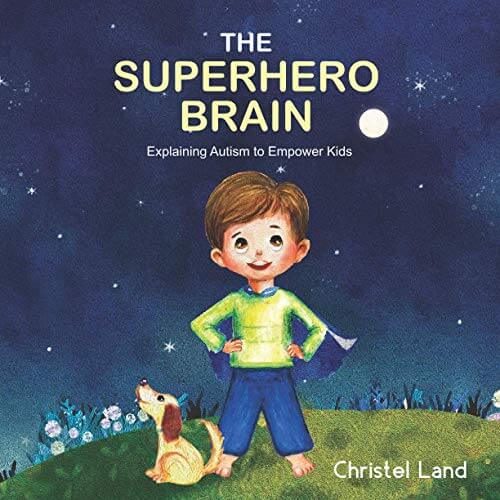
This story speaks to children who have autism, and explains to them what it means in a way that leaves them feeling empowered and able to make their dreams come true. The story refers to sensory issues as “special powers” and explains how living with autism can be awesome and at the same time also feel tricky sometimes.
2. The Superhero Heart
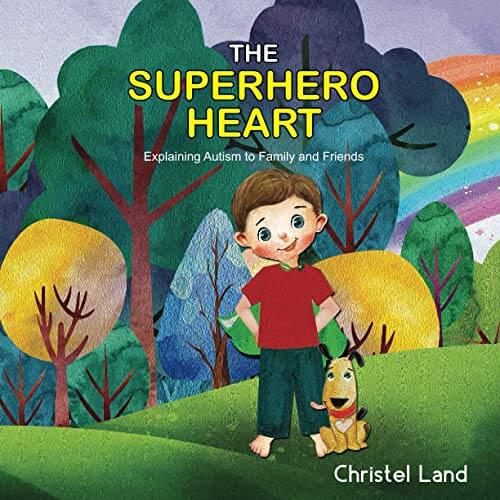
This story speaks to children who are close to a child with autism; a brother, sister, cousin, friend or classmate. It explains how we are all different to each other, and how the sibling has special powers, which help them in the trickier moments where the child might feel rejection or find it hard to deal with a meltdown.
3. My Awesome Autism
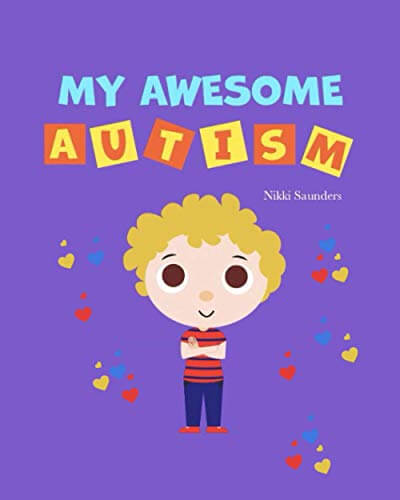
A beautifully, bright and sensory illustrated book! A little boy named Eddie who is autistic, shares his findings and teaches his readers in a cheerful playful way! Eddie helps all children learn about their Autism diagnosis and how “we are all different!”
4. He’s Not Naughty
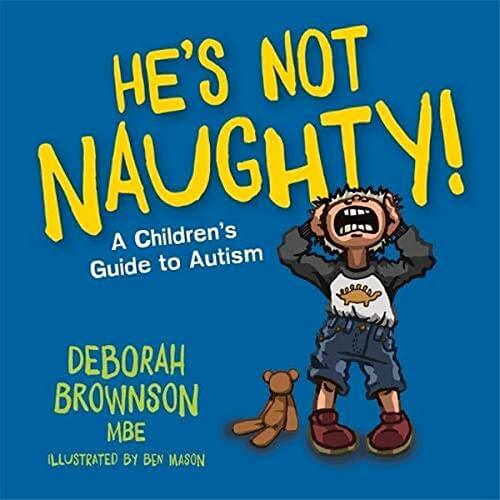
This distinctively illustrated book is a quick and quirky way to explain to friends and family why children with autism behave the way they do. Unique visuals provide a great sense of what it’s truly like to have autism, making this the perfect book for children aged 6 and up to learn about autism.
5. Can You See Me?
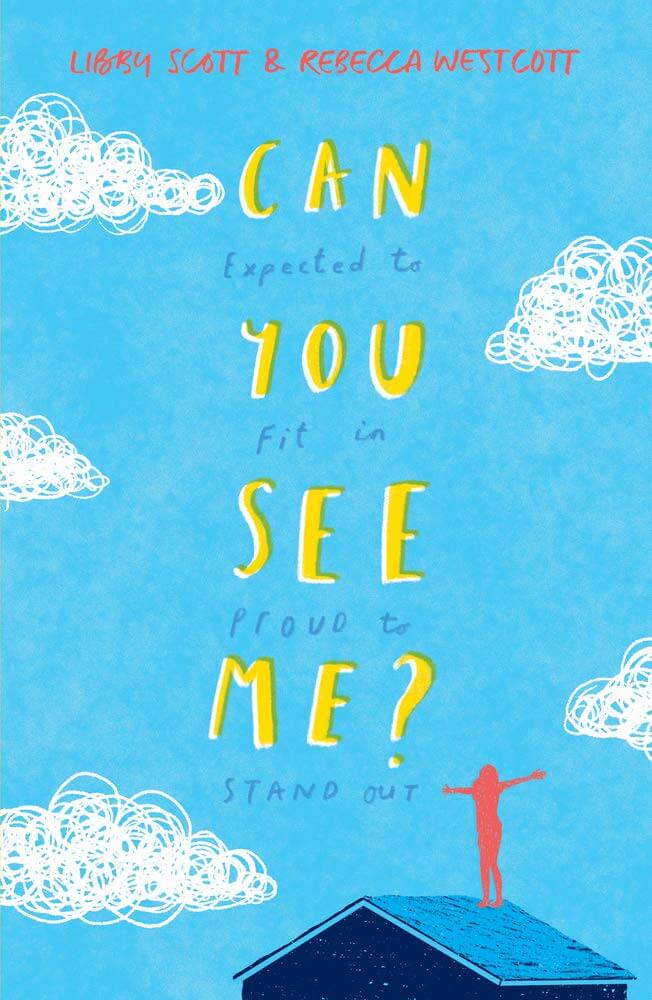
When Libby’s mum shared a short piece of Libby’s writing online it soon went viral, with tens of thousands of people saying that Libby’s writing helped them understand Autism for the first time
This fictionalised portrayal of a young autistic girl is written by Rebecca Westcott, in close collaboration with Libby Scott, making it a truly original and inspirational book that will give readers of all ages a deeper understanding of what it’s like to be autistic.
Follow us on social media for more helpful advice, tips and recommendations!
It all started 3rd June 1972 with a man called Keith Pennock. His daughter, Alison, had acquired a brain injury at a young age and the family were desperately reaching out for help and seeking support for her difficulties.
Keith and his wife visited an organisation in America they believed might help Alison. They saw huge improvements in Alison’s difficulties and so began to help other families access the support. That organisation approached Keith to run something similar in England.
It was evident that Keith’s passion and ambition for helping brain injured children would be able to carry the organisation forward to be a success – and so the work began. Four years after opening, the organisation moved from Staffordshire to Knowle Hall in Bridgwater, Somerset.
In 1980 we became independent, with the name ‘The British Institute of Brain Injured Children’. And in 1990, after 20 years of building an incredible charity supporting children just like his daughter, Keith retired as the Chief Executive, having built a team who could carry on his work in the coming decades.
1997 marked a positive year for our development
We linked with NHS children’s neurodisability specialists, who visited us to evaluate the techniques and strategies used. Further recommendations were made for our work in order to strengthen the clinical base and integrate with more mainstream therapies.
In 2007, we shortened our name to ‘bibic’ to reflect the scope of conditions we were now able to support, helping not only children but young adults too, with or without a diagnosis, which we continue to do to this day. And we are now based in Langport, Somerset, where we have been since 2014.
Our bibic team expanded in 2016 and onwards
Our team has continued to grow, develop and learn. We recruited two more therapists to support even more children and young adults and enhanced our reach.
Like all small charities, we’ve gone through some hard times. However the strength of our work and our focus on supporting those who come to us has never changed.
Through the pandemic
We knew the support for children and young adults could not pause, and our team developed digital assessments to safely ensure all families could access our support and advice.
2021 and a growth in need
In 2021 more families have been seeking our support than ever before, and we welcomed two more therapists to the team, now with a total of seven therapists. We also opened our brand new therapy suite, increasing the space for families and ensuring we could offer the most appropriate assessments.
We are so excited for the big things to come from us in 2022
The bibic approach to therapy is to look at the young person as a whole, as all areas of development interact and impact each other. We work closely with our families to support and empower them.
Within 50 years, we have now helped over 20,000 children and young adults with a variety of difficulties such as; Acquired Brain Injury, Autism Spectrum Disorder, Attention Deficit Hyperactivity Disorder, Global Developmental Delay, Sensory Processing Disorder, Downs Syndrome and many more.
The work we do shows the legacy of the work one family started to make life better for children with brain injuries. Our work today continues that legacy, and we are determined to help families that reach out to us through therapy, advice and support.
Here is to the next 50 years…
So, imagine you’re at a social gathering and you get asked that age old question. What does a typical day look like in your job?
Well, the answer to that is a complicated one, as no day is the same when you are a therapist at bibic and that, quite honestly, is why it is one of the best jobs.
Being a therapist is more than a job, it’s a calling. All of us care so much about our families, children and young adults we help. So, when you walk through the door and are welcomed in, it really is a genuine smile that greets you. We can’t wait to get to know you as a family and the individual we are specifically assessing, not for the numbers or statistics but for who they really are, finding real ways to help.
All good conversations start with a cuppa, which is why we love the family spaces in our therapy suite, having the what sounds frightfully serious, ‘history session’ is really the way that we can all get to know each other. This helps us to find the best activities to do with who we are seeing, believe it or not we have around 35 tests that we can choose from to use! So, whilst the family are having snack time and playing, we are working out what are the best activities to help us understand that individual’s brain better. Of course, we also have to get other essential therapist items – FIDDLE TOYS! I mean visual timetables, post-it notes, stop watches and other visual aids…
The rest of the day is spent doing the assessment, again something that sounds very official but what we all love is play! Breaks are an essential part of what we do as well as thinking on our feet. So, you may find your therapist; lying on the floor, hiding, playing cars, using the scooter or any other sort of shenanigans to work with the child/individual we are seeing. Stress is not welcome in our methodology and we want families to feel at home in our space knowing that no judgement is coming their way.
After our wonderful families have finished on the first day and are headed home, we are busy squirreling away behind the scenes. Marking tests, putting them into the context of who we have seen to make sense of the struggles they are presenting with, preparing a super bespoke therapy plan, talking it through as a team, because one thing we always do well is help each other. So, when you speak to us the next day, know it’s not just who is sat in front of you who has thought things through and how to help, but a whole team is surrounding you wanting to help and cheer you on.
We talk through what we have discovered with the family, and yes sometimes there are tears, that’s ok, it’s not an easy journey that families have been on when they come to see us. Then, after another cup of tea and a snack, we get to talk through all of the ideas that we have and what we think will help. It’s an intense day for all involved, but the biggest reward is when you see a family leaving through the archway knowing that their load has got a little lighter with the help they are searching for.
And when you leave know that what we do doesn’t stop there. The next day we are at our computers writing reports, these are so important for families and can help them access support in the future. Once they are written they then go through a thorough checking process for quality assurance, making sure no cheeky typos pop up so that only the best is going to our families. Our support is on hand for families for the next six months, so when they have a call from school, or need to talk strategies through with us we are here.
Being a therapist also means that you are involved in many areas of the charity; helping the amazing fundraising team, whether that be holding buckets or finding information for bid writing; working with the marketing gang to make sure your great stories are out there, as well as our help through events like our live Q & A’s; being on hand for the family services team to work out what is the best assessment for you. Other key skills a therapist must have for the day-to-day work life include: an excellent ability to put flat pack toys together, cleaning toys, answering the phone, mastering the photocopier and making each other laugh.
So, now you know why the question ‘what does a typical day look like for you?’ is so tricky.
To learn more about what we do and our services click here
At bibic we know how important it is for yourself and your young person to look after wellbeing, our Developmental Therapists have chosen the Top 10 books that they recommend to do just that…
1. Wreck this Journal

The book for those who’ve always wanted to draw outside the lines but were afraid to do it.
For anyone who’s ever wished to, but had trouble starting, keeping, or finishing a journal or sketchbook comes Wreck This Journal, an illustrated book featuring a subversive collection of suggestions, asking readers to muster up their best mistake – and mess-making abilities to fill the pages of the book (and destroy them).
2. Big Life Journal
This Journal has three options for different age ranges
Ages 6-11: The daily activities inside the journal help your child focus on encouraging, self-loving thoughts and wire their brain for growth mindset, resilience, confidence, gratitude, kindness, and self-love.
Ages 7-10: Helps children develop strong social-emotional learning and growth mindset skills through inspiring stories, colourful illustrations, and engaging guided activities. In this illustrated journal, children discover: how to believe in themselves, how to face challenges with confidence, mistakes are opportunities to grow and how they can achieve anything when they’re persistent.
Ages 11+: Helps tweens and teens to; discover the power of their brain and mindset, understand they are in charge of their own lives and happiness, turn their negative self-talk into positive and empowering, practice setting goals, learn to overcome challenges and setbacks.
3. The Positive Doodle Diary
The Positive Doodle Diary for children is a bright and colourful mindful gratitude journal designed to help a child thrive through creativity.
The Positive Doodle Diary uses daily doodling and simple journaling to encourage creativity, self-expression and mindfulness. It’s full of lots of different activities that help children explore and experiment with themes of confidence, resilience, kindness and even self-care!
4. The HappySelf Journal
These daily journals for children and young adults use scientifically proven methods to promote happiness, develop healthy habits for life and nurture curiosity. Beautifully illustrated and easy to use, with just a few minutes focus each day children benefit by being encouraged to express gratitude, reflect on their emotions and think about their actions.
The results are positive and plentiful: thousands of parents have told us about better sleep, reduced anxiety, improved connection and communication, increased kindness and more positive mindsets in their children.
5. The Positive Planner
The Positive Planner really is a journal with a difference. Take yourself on a 12-week journey of self-care, gratitude and daily positivity.
The Positive Planner was created to encourage you to make journaling and mindfulness an everyday practice. You’ll find sections dedicated to daily intentions and reflections, a mood checker and gratitude as well as loads of useful tools designed to enhance positivity and manage your wellbeing. But in all this, the Yellow One is still a planner at heart and features everyday organisational extras such as meal planners, shopping lists and monthly diary spreads.
The Positive Planner is a gentle daily companion that helps you get more organised while most importantly improving your mental health and wellbeing. A great starting point for someone looking to make self-care a regular practice.
6. What to do when I worry
What to Do When You Worry Too Much is an interactive self-help book designed to guide 6-12 year olds and their parents through the cognitive-behavioral techniques most often used in the treatment of generalised anxiety. Engaging, encouraging, and easy to follow, this book educates, motivates, and empowers children to work towards change.
It includes a note to parents by psychologist and author Dawn Huebner, PhD.
7. My Hidden Chimp
My Hidden Chimp is an effective and powerful new educational book that offers parents, teachers and carers some ideas and thoughts on how to help children to develop healthy habits for life. The science behind the habits is discussed in a practical way with exercises and activities to help children think the habits through and start putting them into practice. The neuroscience of the mind is simplified for children to understand and then use to their advantage.
Professor Steve Peters explains neuroscience in a straightforward and intuitive way – offering up 10 simple habits that we as adults and children should have in our arsenal to deal with everyday life.
They include:
– Smiling
– The importance of talking through your feelings
– Learning how to say sorry
– Knowing how to ask for help
By also explaining the developing ‘chimp’ brain in children, he shows us how 10 habits can help children to understand and manage their emotions and behaviour. These 10 habits should and can be retained for life.
This is an important and another ground breaking new book from the bestselling author of The Chimp Paradox and the creator of the chimp management mind model.
8. Wanda’s words got stuck
Wanda the witch is so shy she can’t talk! No matter how hard she tries, the words won’t come out. But when another nervous little witch called Flo joins her class, it seems that Wanda’s not the only one who worries about speaking. Then disaster strikes at the magic contest . . . will Wanda have the courage to shout out the magic words and save her new friend Flo from a dangerous dragon?
This heart-warming adventure about finding confidence through friendship is filled with potions, spells and magical animals! Children will fall in love with brave Wanda the witch, especially those who have difficulties with speech, anxiety about talking, or lack confidence in front of others.
Lucy is a children’s speech and language therapist whose books include Pirate Pete and His Smelly Feet, illustrated by Mark Chambers and Sammy Claws the Christmas Cat, also illustrated by Paula Bowles.
9. The Homunculi Approach to Social and Emotional Wellbeing
The Homunculi, (or ‘little people’), is a fun activity that builds social and emotional resilience in children and young people, aged 7 upwards, and into the teenage years. It is particularly suited to those with high functioning autism or Asperger’s Syndrome who often have difficulty identifying troubling feelings such as anger, fear and anxiety.
The Homunculi are miniature agents with problem-solving missions and special gadgets who live inside the brain and help out with distressing thoughts, feelings and behaviours. Through inventing their own Homunculi characters and stories, participants in the activity learn to cope with their real-life social problems. Complete with a large-format skull poster, character and storyboard templates, and photocopiable record sheets, this unique resource includes everything needed to get started on making Homunculi stories, cartoons or videos.
This flexible, 10-week, CBT-based programme for individuals or groups will be transformative for psychologists, therapists, teachers and other professionals working with children on the autism spectrum or with behavioural difficulties.
10. A Volcano in My Tummy
A Volcano in My Tummy: Helping Children to Handle Anger presents a clear and effective approach to helping children and adults alike understand and deal constructively with children’s anger. Using easy to understand yet rarely taught skills for anger management, including how to teach communication of emotions, A Volcano in My Tummy offers engaging, well-organized activities which help to overcome the fear of children’s anger which many adult care-givers experience. By carefully distinguishing between anger the feeling, and violence the behavior, this accessible little book, primarily created for ages 6 to thirteen, helps to create an awareness of anger, enabling children to relate creatively and harmoniously at critical stages in their development.
Through activities, stories, articles, and games designed to allow a multi-subject, developmental approach to the topic at home and in school, A Volcano in My Tummy gives us the tools we need to put aside our problems with this all-too-often destructive emotion, and to have fun while we’re at it.
Follow us on social media for more advice, tips and recommendations from our Developmental Therapists!
Let’s talk about Irlen Syndrome. In this blog we’ll explain exactly what is Irlen Syndrome, what the symptoms are, and what to do about it. We are also going to hear what it is like to experience Irlen Syndrome from a bibic Developmental Therapist.
What is Irlen Syndrome?
Have you ever had difficulties with reading, attention, headaches, or light sensitivities? These symptoms and more could be a sign of perception difficulties.
Irlen Syndrome is a visual perceptual processing disorder that can affect children and adults of all ages. It is a difficulty with the brain’s ability to accurately process visual information. It has been the subject of medical and educational research and is a recognised syndrome with a physiological basis.
Tabby is a Developmental Therapist at bibic, in her early 20’s, she had experienced difficulties when reading in the past and was unable to concentrate easily, she talks about her experience when she first realised she could have Irlen syndrome.
Did you know you might have Irlen Syndrome?
“Prior to having an Irlen assessment, I had not heard of Irlen syndrome and didn’t think there was anything wrong with my visual perception. Before my assessment I experienced lots of difficulties when reading, for example I would get extremely tired, have headaches, I found it difficult to concentrate on the words, the words would go blurry, and most of the time I wouldn’t even take in what I had read, having to re-read it again. I had my eyes tested at the opticians and everything came back okay, so I didn’t think there was anything abnormal about this and presumed everyone experiences visual stress and there was nothing you could do about it.”
How did you feel when you found out about Irlen Syndrome?
“When I found out about Irlen Syndrome, I immediately wanted to have an assessment to see if it would help with my reading. I found out I have Irlen Syndrome and require grey overlays when reading to reduce the visual stress I experience. Since the assessment I still cannot believe how much easier it is reading with a coloured overlay and the huge difference it makes; the words look so much clearer and I no longer become tired or get headaches when reading. I also understand what I read so much more as I’m not having to put as much effort into reading the words. If anyone experiences the difficulties I had when reading and cannot understand why, I would highly recommend looking into Irlen syndrome as it has made such a positive difference for me, making my work life and completing my degree so much easier!”
What can I do about it?
Individuals with Irlen Syndrome have difficulty processing all visual information, not just words on a printed page, so it can cause reading difficulties, light sensitivity, physical symptoms, fatigue. As well as difficulties with depth perception, driving, behaviour, writing and gross motor skills. It can also lead to stress, anxiety, low self-esteem, and underachievement. The difficulties that Irlen gives an individual can manifest itself differently for each individual. If left un-helped it can often become a lifetime barrier to learning and performance.
bibic is a charity based in Langport, Somerset, they offer a range of assessments, from a full two-day bibic assessment where they assess the child as a whole to more specific screeners with their experienced developmental therapists.
If you think yourself or your child could benefit from an Irlen screening session or an assessment with bibic, get in touch with the team, they can have a chat with you via phone or email to discuss your enquiry further.
Learn more about Irlen Syndrome here!
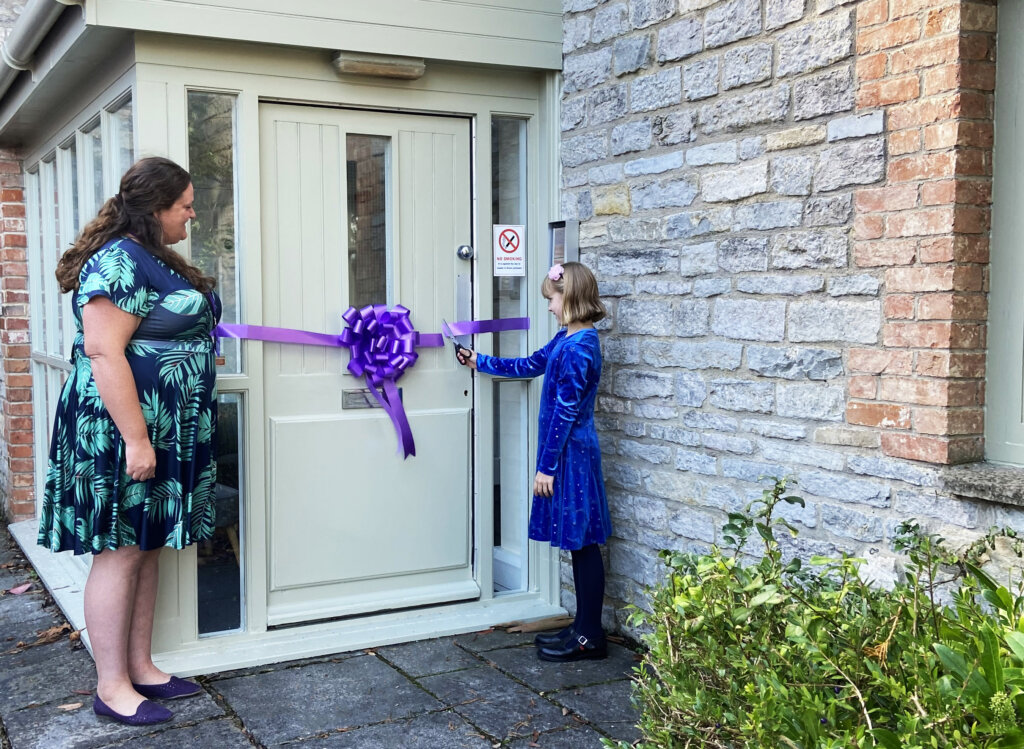
After months of hard work, fundraising and planning, Monday 27th September 2021 marked the official opening of our brand-new therapy building. The generous support we have received from our supporters has been crucial to making it all happen.
The demand for bibic services has increased hugely over the two years and we urgently needed more rooms to carry out assessments, more space for families and most importantly, more areas for children to play and for young adults to be themselves in.
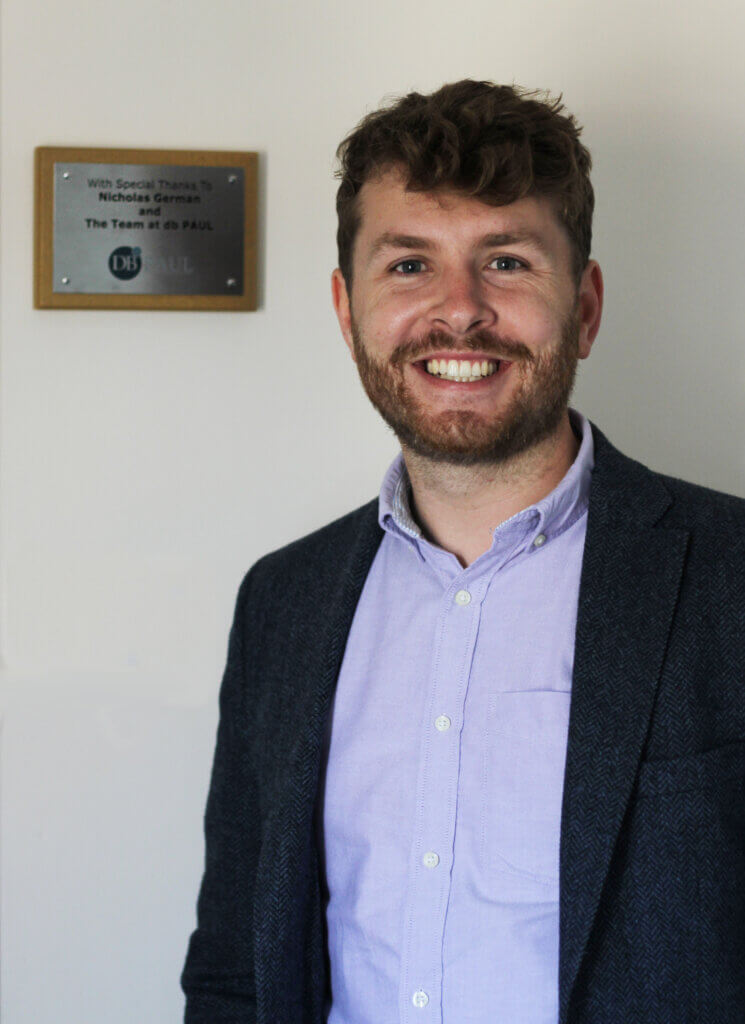
We are excited to announce we have a new and improved sensory room, a large family area, and new therapy rooms, including a complex needs room, as well as plenty of new toys and facilities.
We held a small event to mark the official opening and to cut the ribbon to the new therapy building and to thank our supporters for their generous support which has been crucial to making it all happen.
We were joined by Nicholas German and his team at db Paul, who carried out the survey , prepared designs and completed the specification of works. db Paul worked as the contract administrator with Geoff Barratt and his team at Barratt and Canniford Ltd to complete the therapy floor designs.
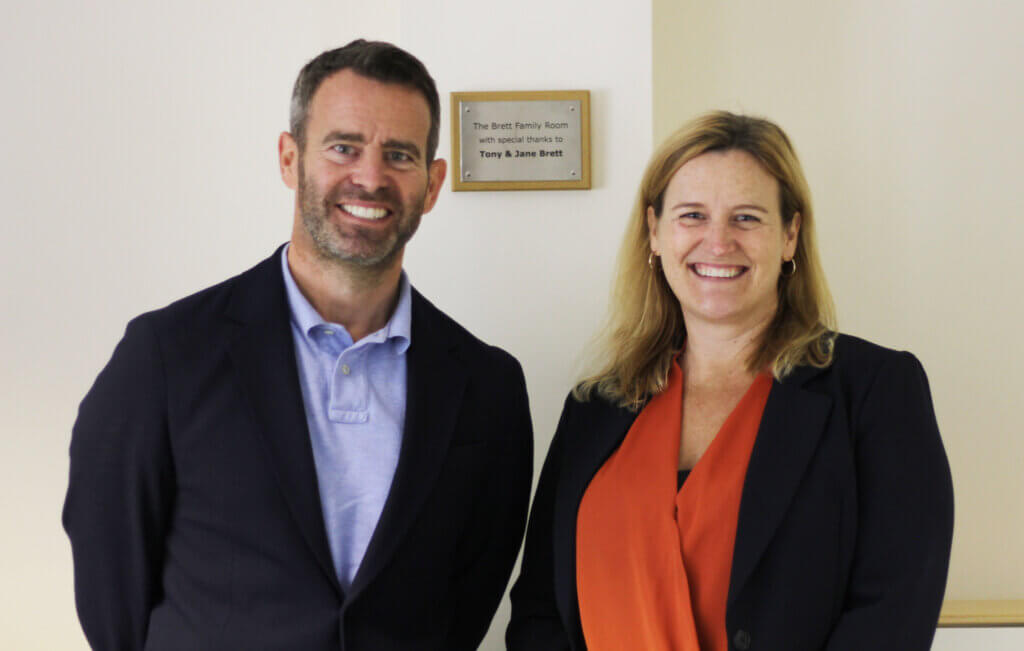
We were also joined by Paul and Emily Brett as representatives from the Brett family, who made a significant donation towards the new family room. This also allowed us to buy brand new furniture for the seating areas for families, new toys for the children to play with and other furnishings to make the family room feel as inclusive and inviting as possible.
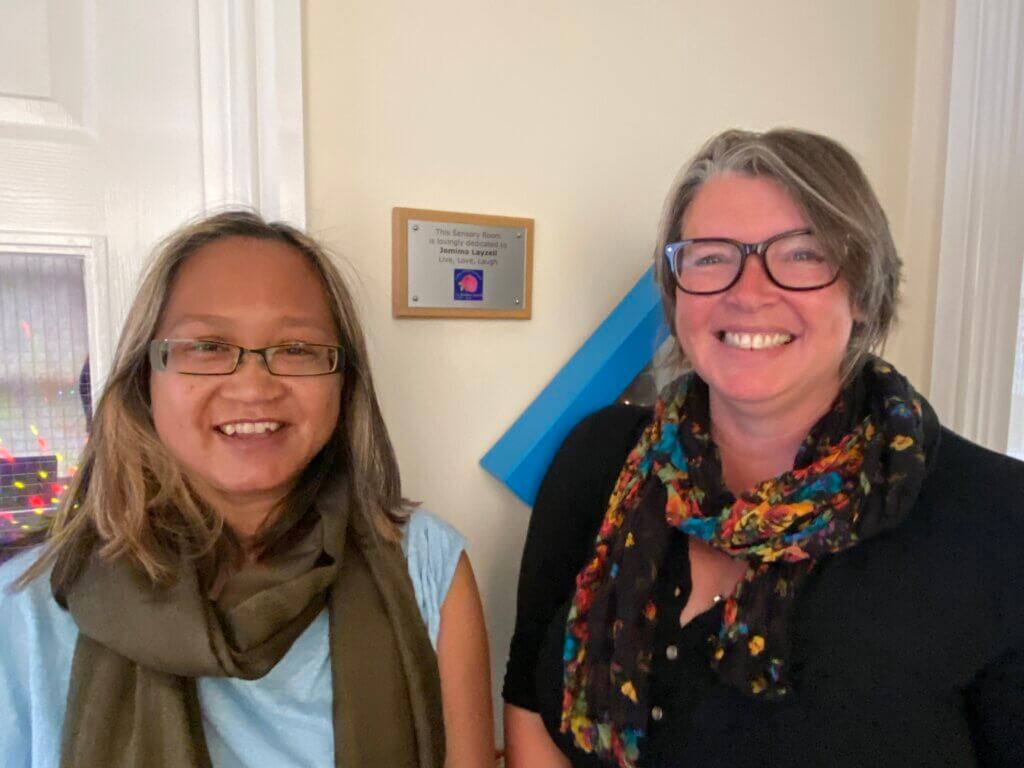
Sophy Layzell and Karin Cumming from the Jemima Layzell Trust also attended the event after their generous support helped us secure new sensory equipment, including a brand-new bubble tube, sound and infinity boards, fibrotic lights, sequin board, water spinner and much more. All of this has created an inclusive and calming environment for our children and young adults to experience whilst visiting us here at bibic.
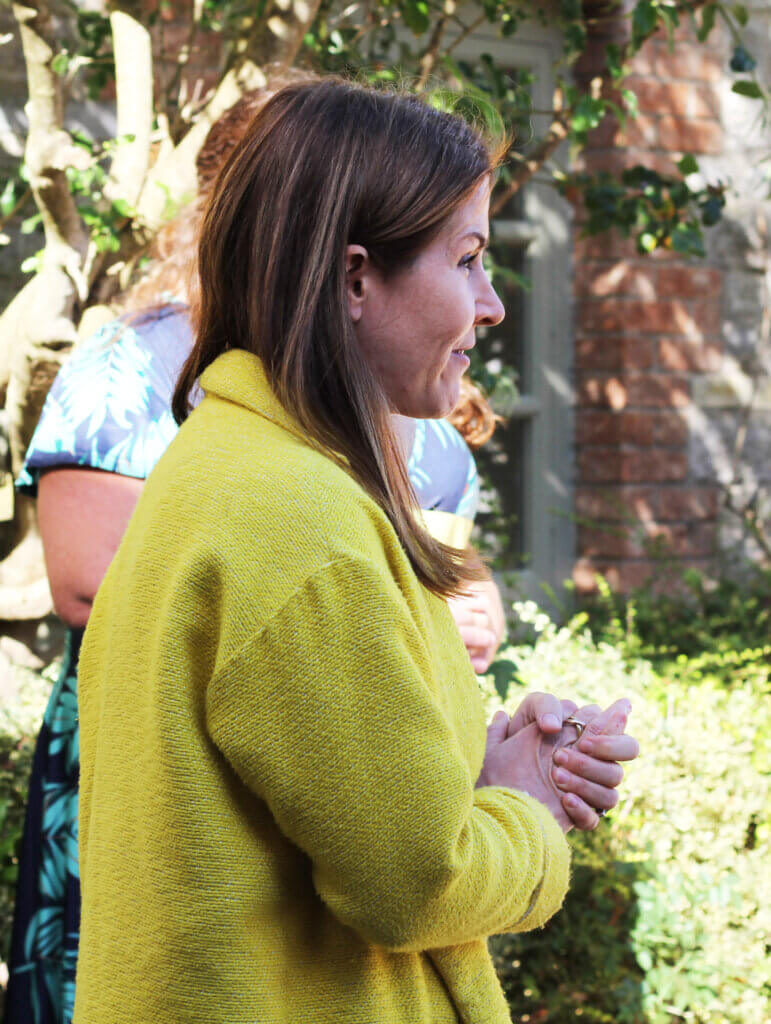
At the event, there were moving speeches from the Chair of Trustees Laura Voyle and Managing Director Pip Buckley, and the centre was officially opened by one of our wonderful bibic families – with the exciting moment of cutting the ribbon performed by 10 year old Florence.
Thank you to all who made this amazing project possible, with generosity and belief in bibic’s mission, we have managed to create a new area which will allow us to see more families and continue to change lives.
You are more than welcome to come and take a look – just give us a call on 01458 253344.
